Neuroscience Perspectives
Immerse yourself in the fascinating world of neuroscience with our expert guests as they explore the mysteries of the brain and the latest breakthroughs in research with our host, John Foxe, PhD, director of the Del Monte Institute for Neuroscience at the University of Rochester.Each episode features in-depth conversations with leading scientists, who unravel complex topics and tackle intriguing questions like: How does the brain shape our behavior? What role do genetics play in our health? How do early life experiences shape brain function and critical periods of brain development? Listen as they share their unique journeys to neuroscience...
Exploring the Impact of Environmental Chemicals on Brain Health
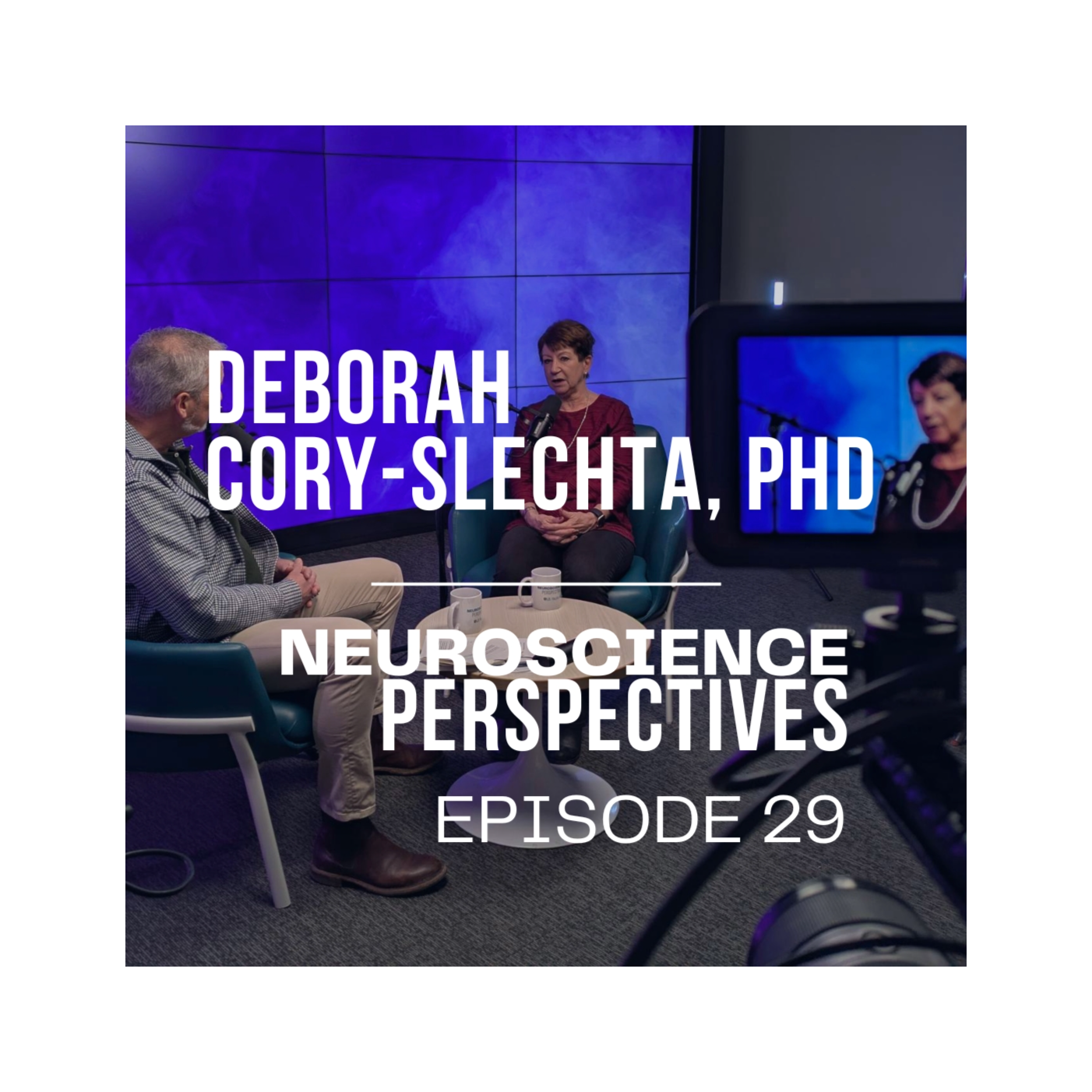
Dr. Deborah Cory-Slechta is a leading researcher at the University of Rochester. She is a professor with appointments in Environmental Medicine, Neuroscience, and Public Health Sciences. She co-leads the University’s Intellectual and Developmental Disabilities Research Center Animal Behavior and Neurophysiology Core. She has chaired the Department of Environmental Medicine and led its National Institute of Environmental Health Sciences Core Center Grant. Her research explores the effects of environmental chemicals—such as air pollution, metals, and pesticides—on brain health. With decades of expertise, Dr. Cory-Slechta discusses the impact that exposures to chemicals in our environment have on neurodegenerative and ne...
Neuroscience & RNA Biology: How mRNA Decay Shapes Health & Disease
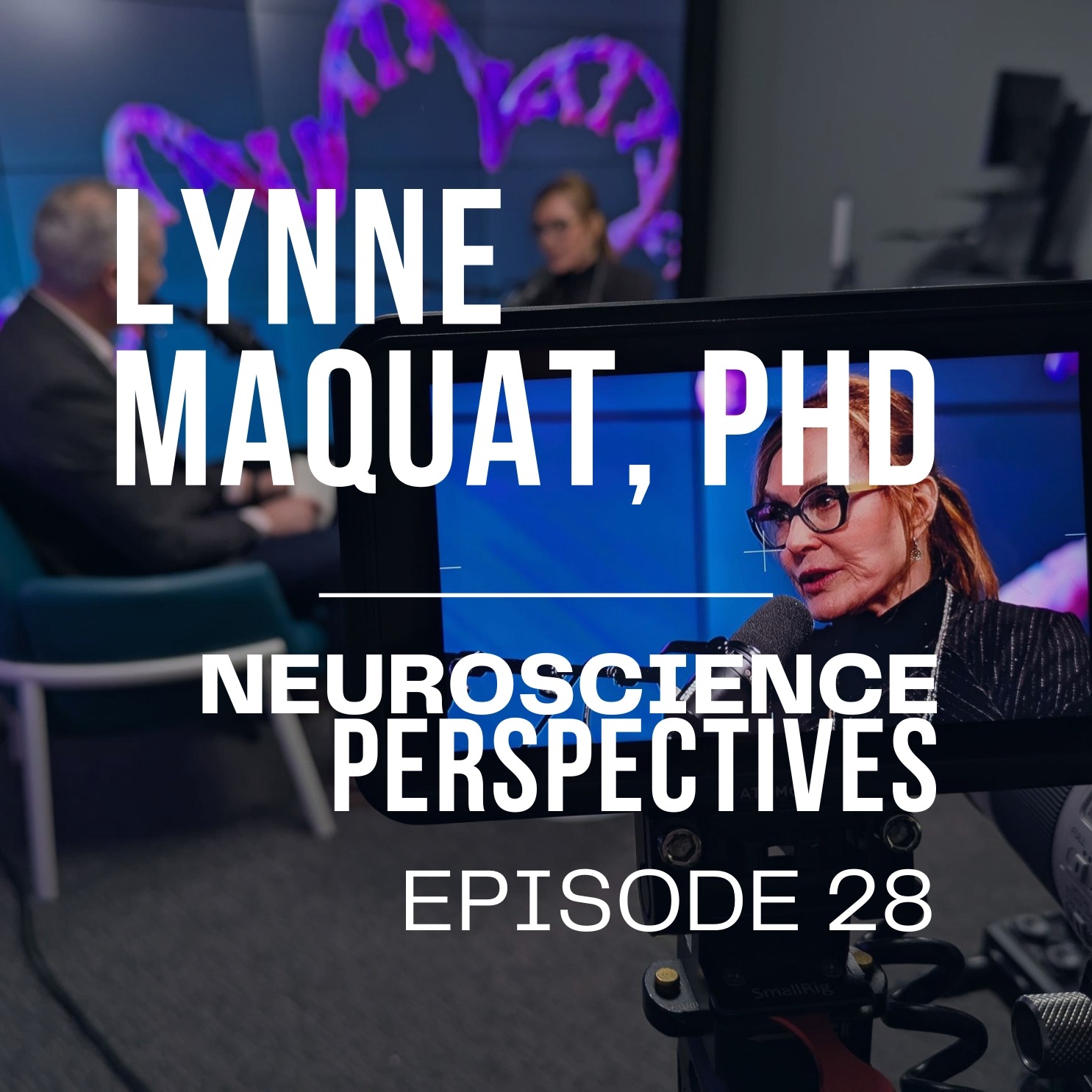
How does RNA biology influence cell function, gene expression, and disease mechanisms? In this episode of Neuroscience Perspectives, host John Foxe, PhD, director of the Del Monte Institute for Neuroscience at the University of Rochester (UR), sits down with Lynne Maquat, PhD, director of the Center for RNA Biology at UR, and J. Lowell Orbison Endowed Chair and Professor of Biochemistry & Biophysics, to explore groundbreaking research in mRNA decay, cellular quality control, and translational research. Dr. Maquat, a world-renowned scientist, shares insights into how fundamental biochemistry, molecular biology, and biophysics drive scientific discovery—from understanding cystic fibrosis, fragile X sy...
Your Brain & Perception: Using Science to Understand How We See the World
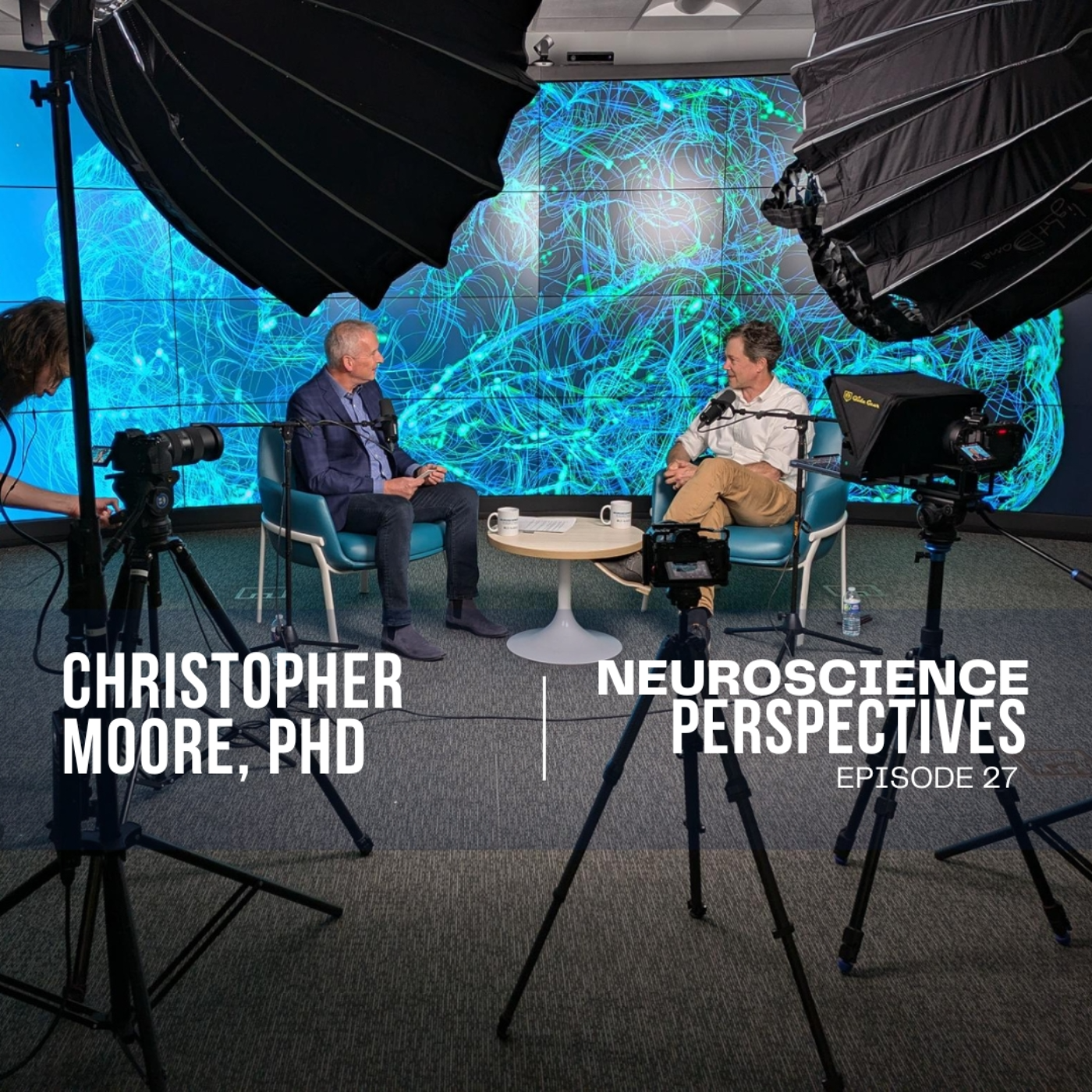
How brain dynamics, perception, and neural processing offer a deeper understanding of how brain activity shapes our understanding of the world. Christopher Moore, PhD, associate director of the Carnegie Institute of Brain Science and professor of Neuroscience at Brown University, joins Neuroscience Perspectives host John Foxe, PhD, director of the Del Monte Institute for Neuroscience at the University of Rochester, in a fascinating discussion that includes why the term neuroscience may be outdated. Dive into Moore’s research that studies neocortical dynamics – changes in brain activity at the millisecond to the second timescale—and how his lab aims to unders...
Recovering From Stroke - How Physical Therapy & Neuroscience are Advancing Care
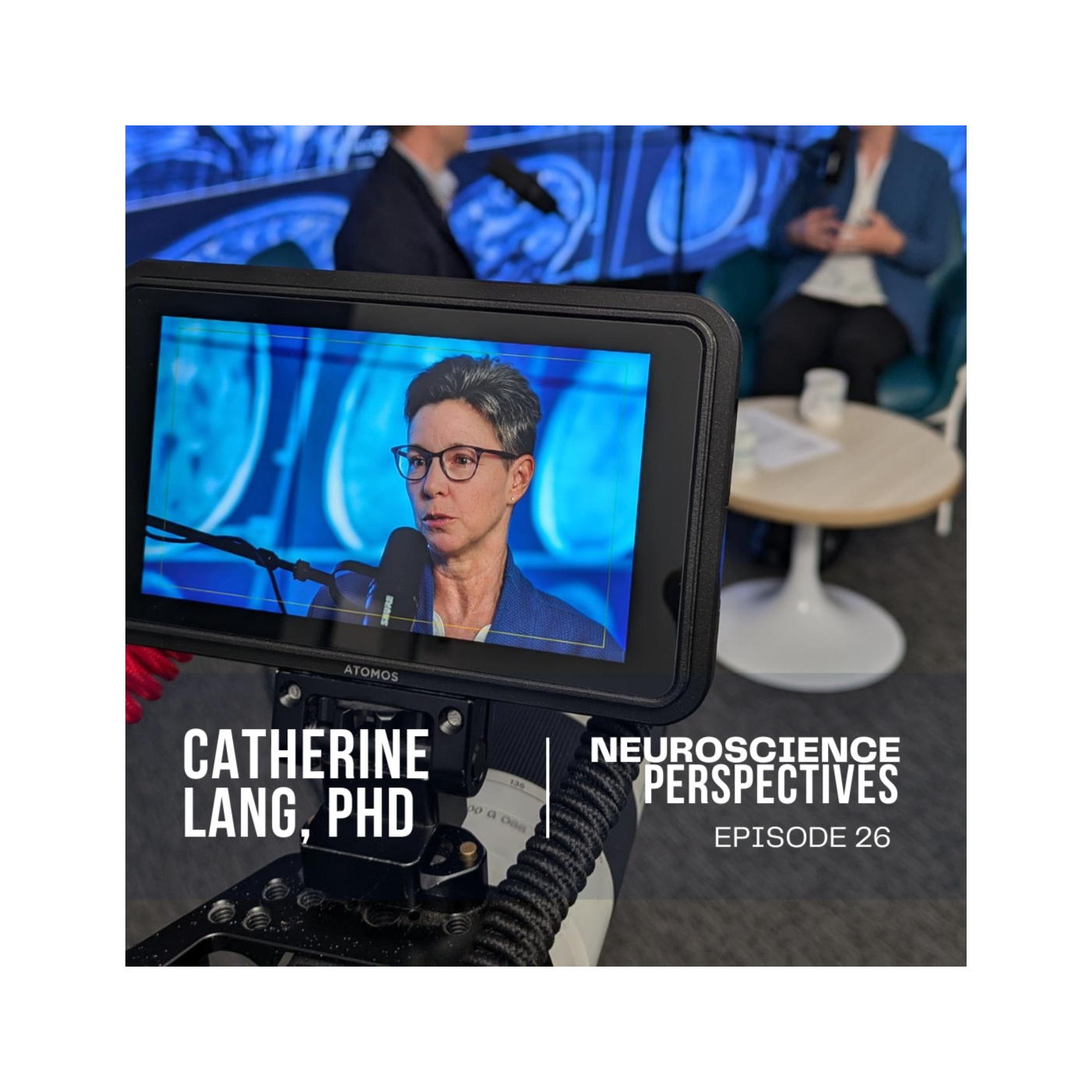
The intersection of stroke rehabilitation & neuroscience research is transforming our understanding of the brain and recovery after a stroke.
Catherine Lang, PT, PhD, Barbara J Norton Professor of Physical Therapy, Professor of Neurology and Occupational Therapy, and Associate Director of the Movement Science Program at the University of Washington in St. Louis, shares expert insights into stroke therapy, the challenges of regaining motor function, and how personal and environmental factors impact rehabilitation outcomes. Dr. Lang is a WashU graduate who completed her postdoctoral studies in a neuroscience lab at the University of Rochester School of Medicine and...
What Happens When You Combine AI and Neuroscience?
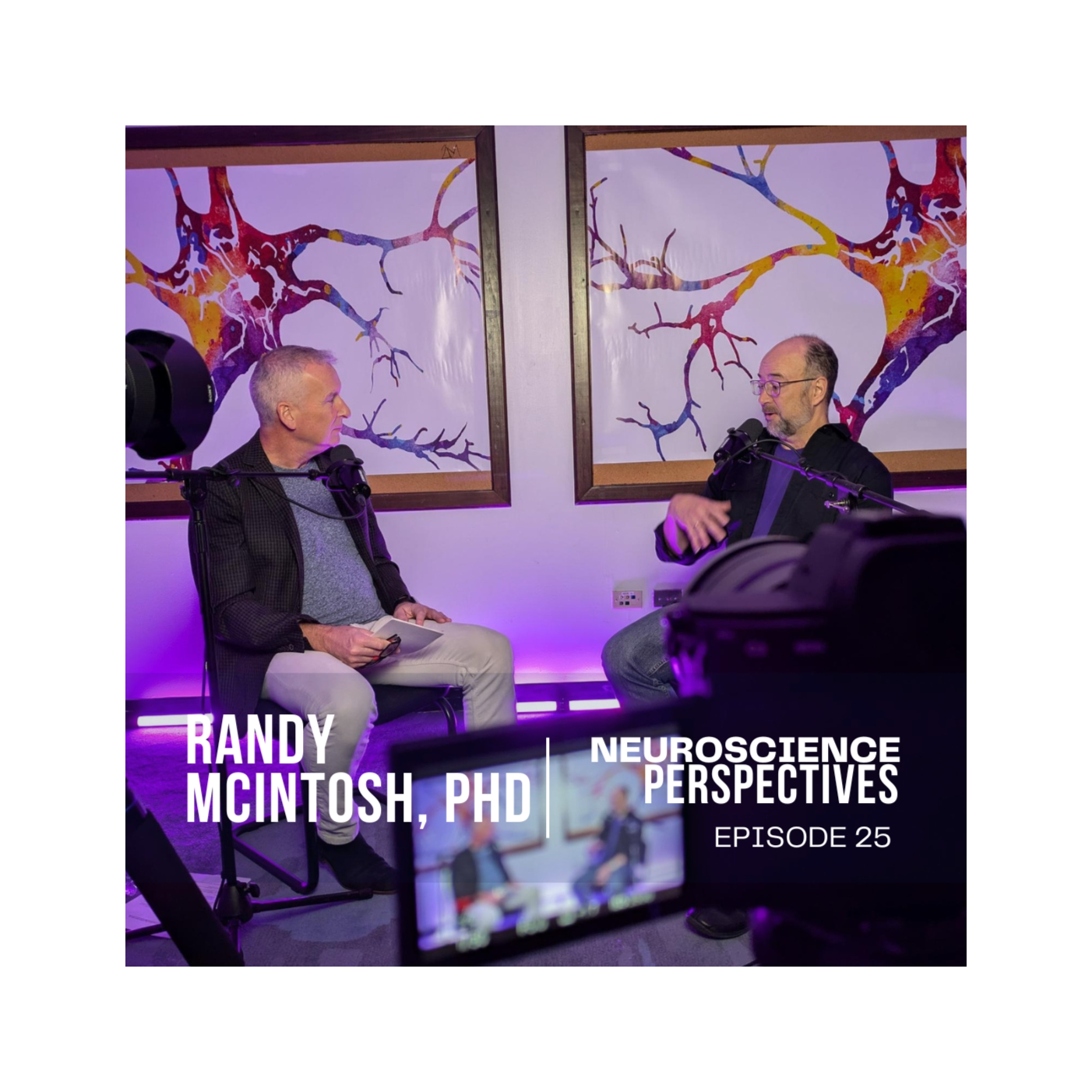
Can we predict brain health across a lifetime? Just as a knee injury at 20 might cause problems later, researchers are exploring how early brain experiences shape future brain health. In this episode of Neuroscience Perspectives, Dr. Randy McIntosh, Professor and Director at the Institute for Neuroscience and Neurotechnology at Simon Fraser University, discusses groundbreaking insights into brain health, neuroscience, and AI with Dr. John Foxe, Director of the Del Monte Institute for Neuroscience. Learn about the Virtual Brain, an open-source neuroscience platform that simulates human brain function, offering new ways to understand conditions like stroke, epilepsy, and neurodegenerative diseases...
Unlocking the Brain's Communication Hub: The Power of the Thalamus with Dr. S. Murray Sherman
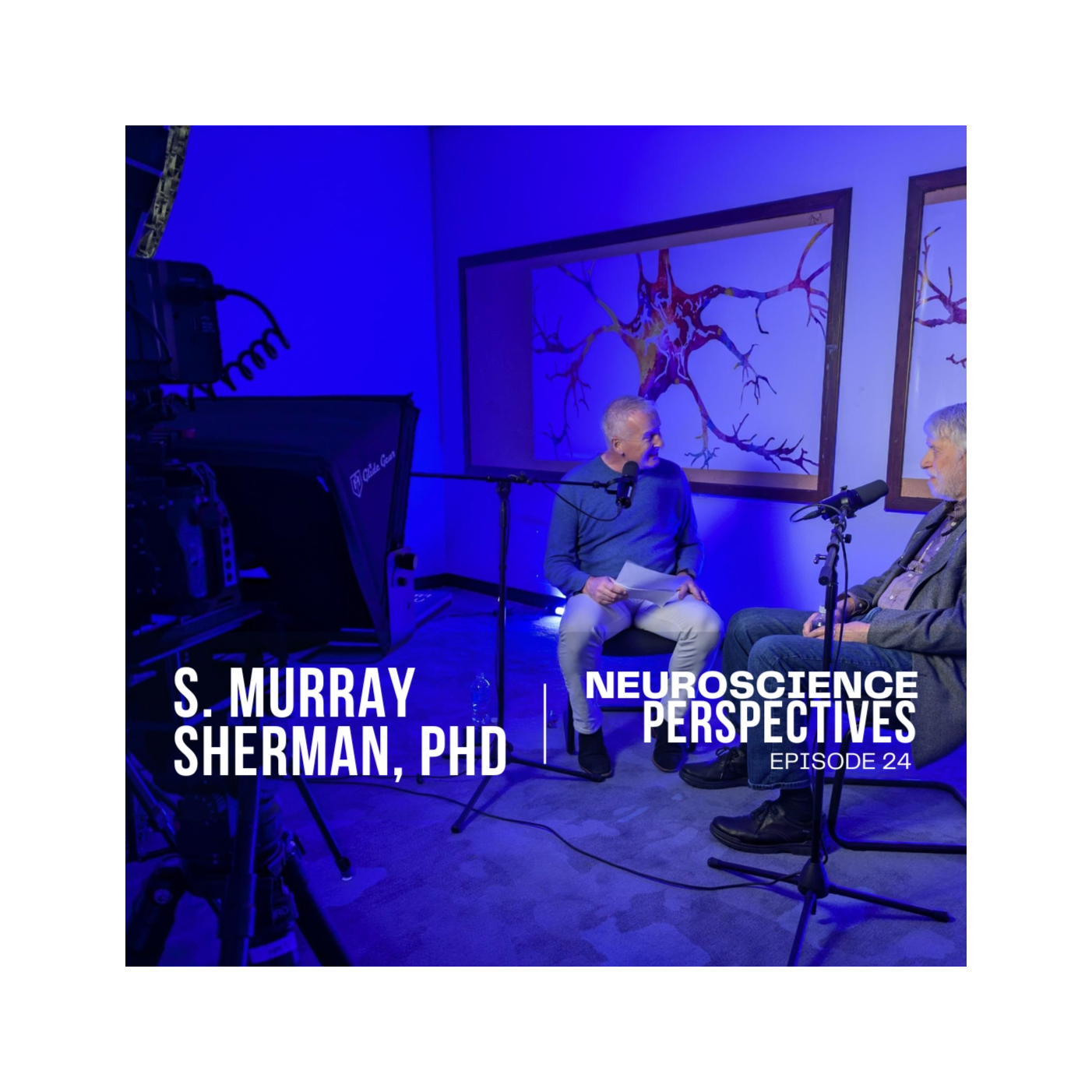
In this special episode of Neuroscience Perspectives, host John Foxe, PhD, director of the Del Monte Institute for Neuroscience at the University of Rochester, sits down with S. Murray Sherman, PhD, Maurice Goldblatt Professor of Neurobiology at the University of Chicago, in Chicago at the annual Society for Neuroscience (SfN) conference. Sherman is a neuroscientist known for his groundbreaking work on the thalamus. Dive into a compelling conversation that unravels how the thalamus plays a pivotal role as the brain's relay center, transforming sensory input into meaningful perceptions and actions.
Discover how Dr. Sherman's research sheds light...
Exploring the Genetic Dance of Neurons: What Roundworms Reveal About Behavior
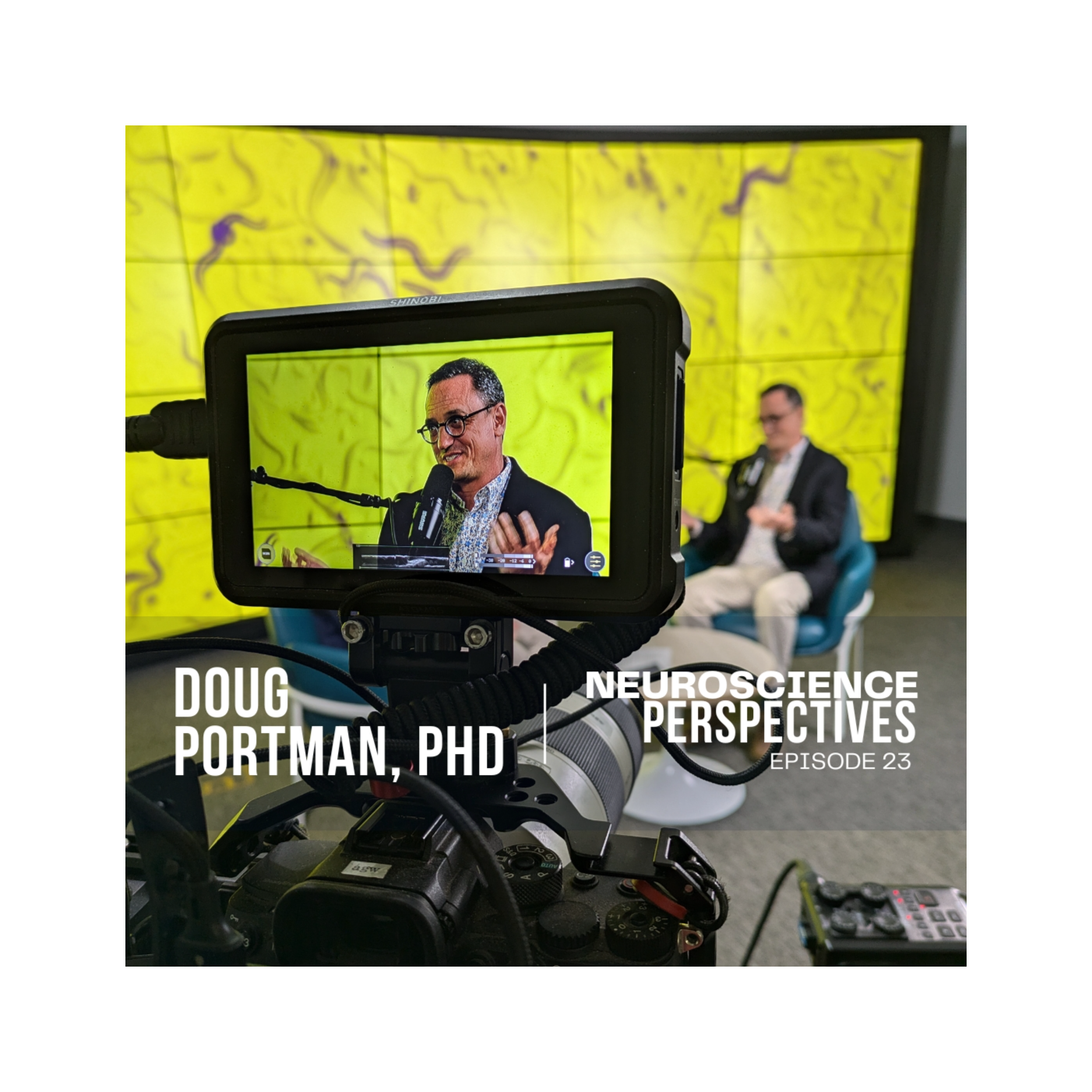
In this episode of Neuroscience Perspectives, we dive into the microscopic world of C. elegans—tiny roundworms that are revolutionizing our understanding of genetics and behavior. Join host John Foxe, PhD, director of the Del Monte Institute for Neuroscience at the University of Rochester as he chats with Doug Portman, PhD, the Donald M. Foster Professor of Biomedical Genetics, Biology, and Neuroscience, at URMC. Portman’s research unravels the intriguing ways that biological sex shapes neural development and influences behaviors, like the eternal quest for food versus the search for a mate.
Discover how these unas...
How a quest to find solutions for vision loss- turned a clinician into a scientist
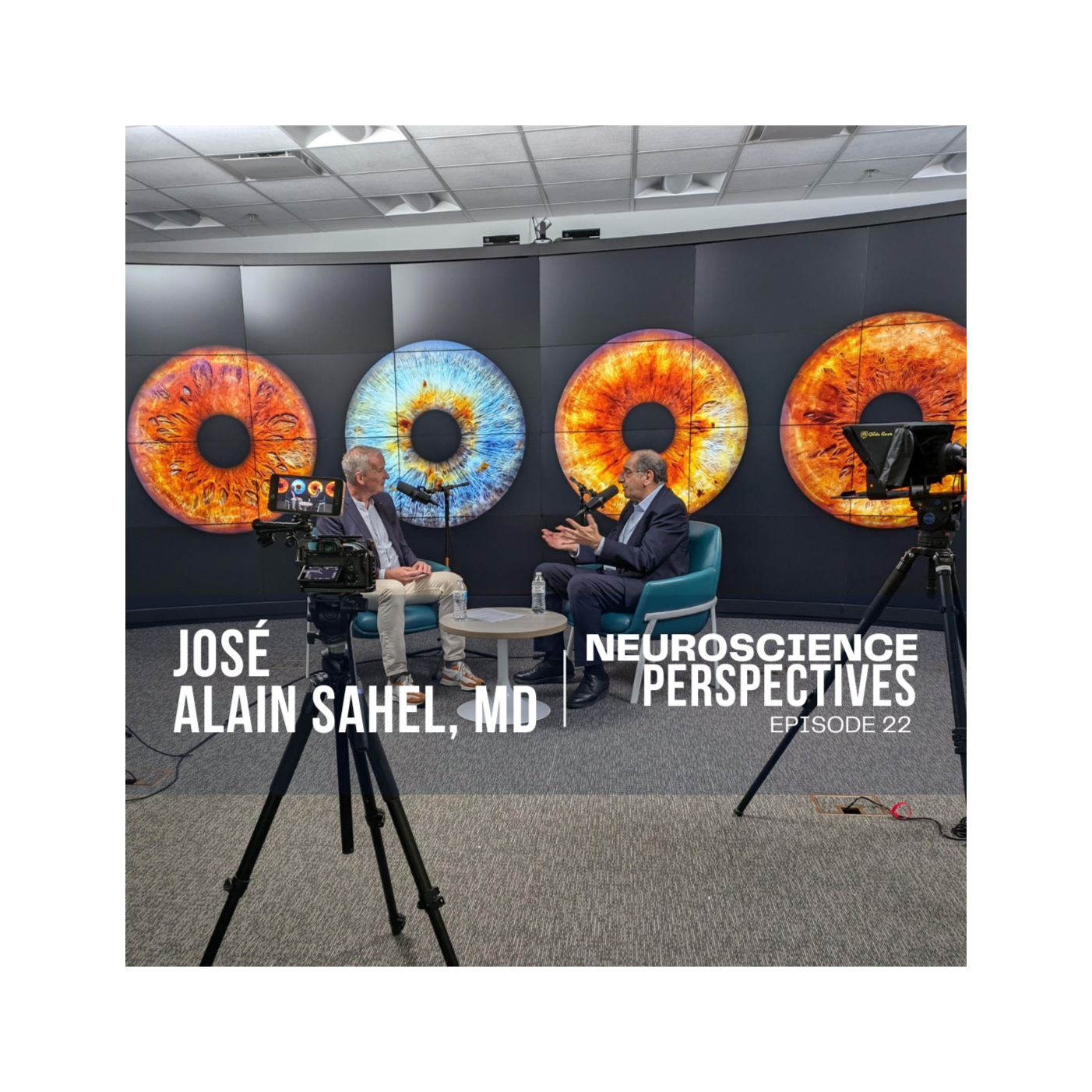
José Alain Sahel, MD, is a distinguished professor, eye and ear foundation professor, and chair of the Department of Ophthalmology at the University of Pittsburgh School of Medicine. He is also the director of the UPMC Vision Institute. Dr. Sahel is a leading expert in retinal diseases and vision restoration research and is a pioneer in optogenetic vision restoration. This therapeutic technique uses genetically modified cells in the retina to express light-sensitive proteins and could help patients who are blind or visually impaired because of a genetic defect. His research has also helped to develop several other interventions for v...
What helped launch leaders in neuroscience into a lifetime of learning
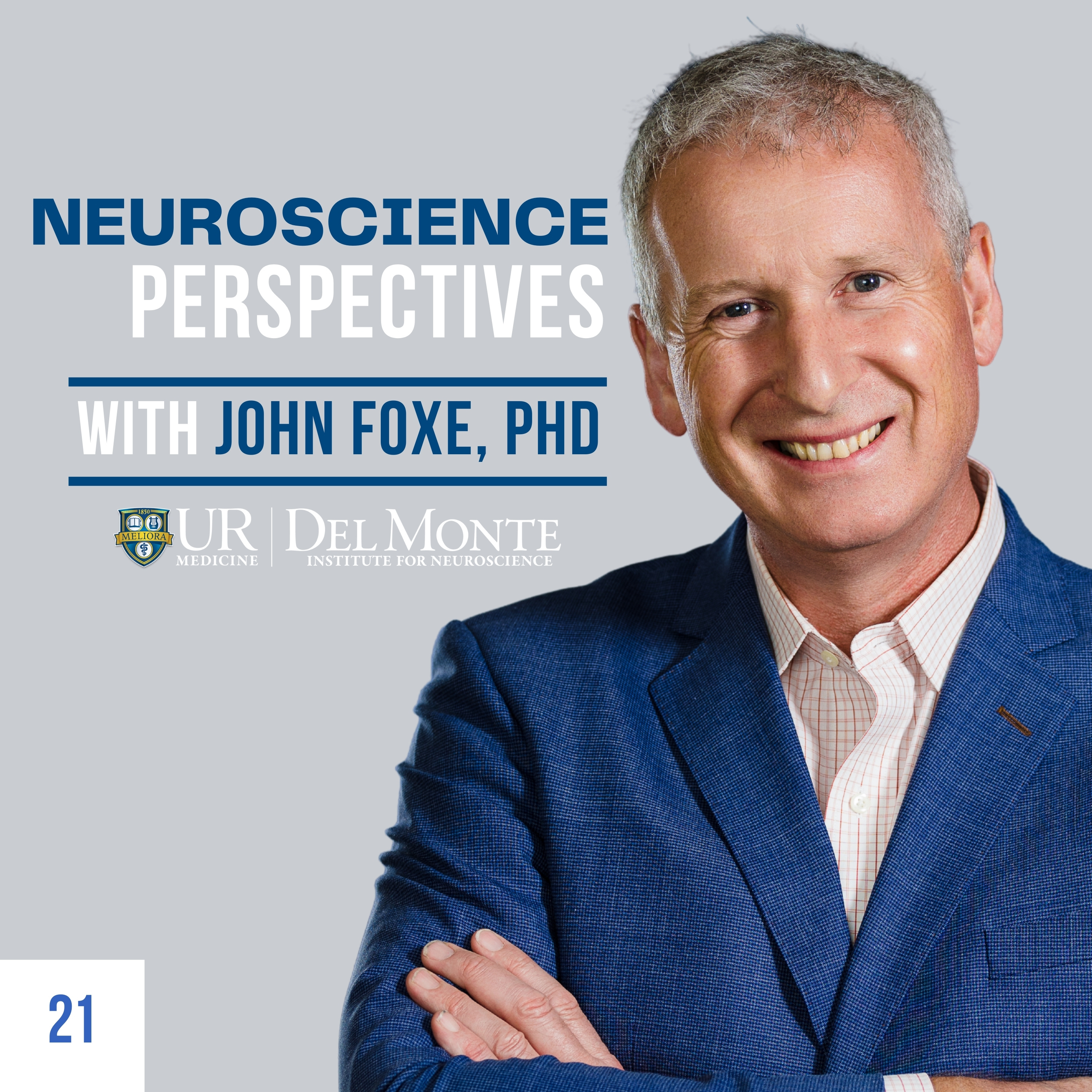
Is there a defining moment that set you on your current path? In this episode of Neuroscience Perspectives, we’re revisiting origin stories – what launched leading neuroscientists into a lifetime of learning and interest in the brain. Host: John Foxe, PhD, director of the Del Monte Institute for Neuroscience
Guests (in order of appearance):
Nathan A. Smith, PhD, associate dean for Equity & Inclusion for Research and Research Education and associate professor of Neuroscience at the University of Rochester School of Medicine School of Medicine and Dentistry, Full Episode: https://urmc.info/1G5
Fan Wang...
Neuroscience insights: How to steer toward success in science
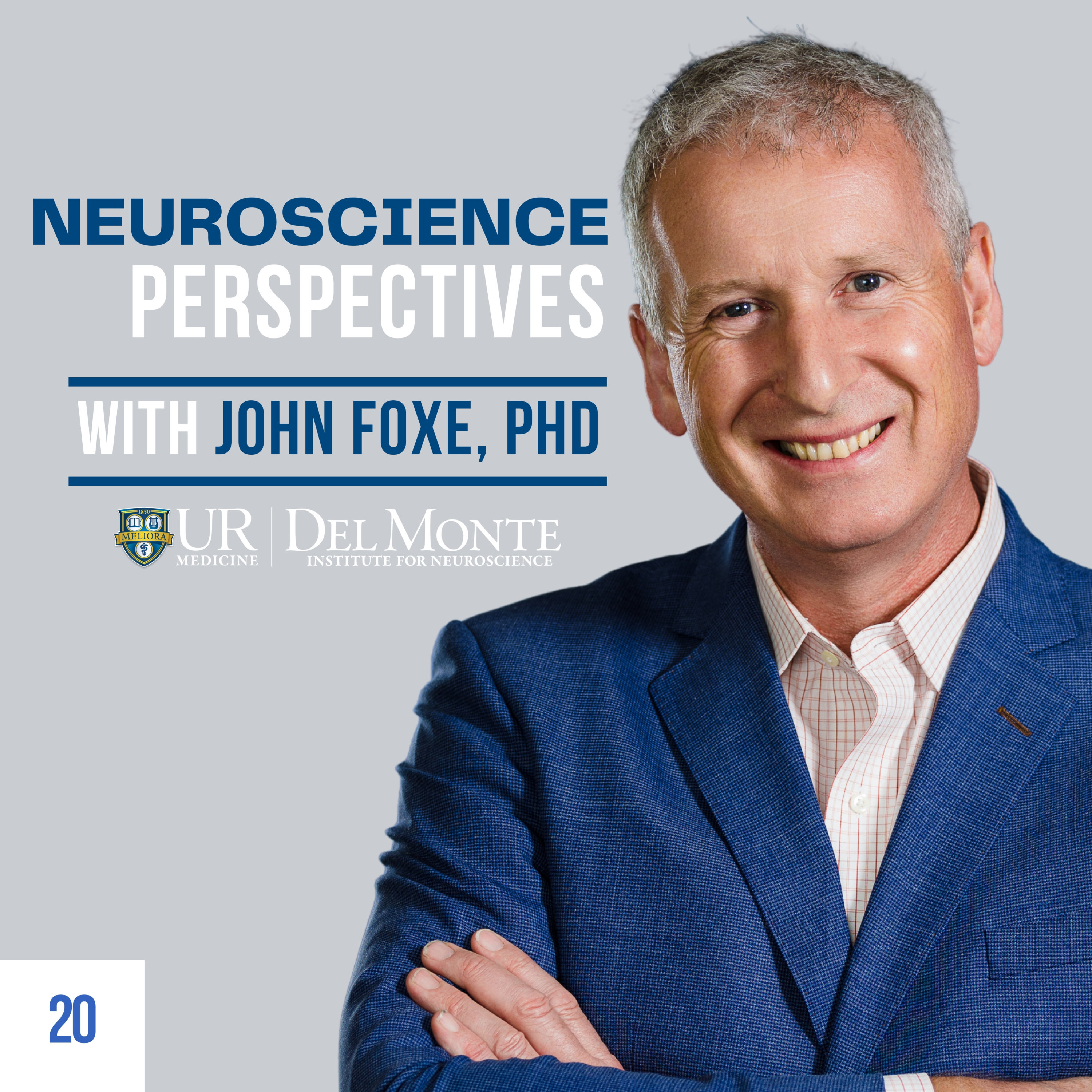
How often do you think about science fits into your life and how you fit into the field? For our 20th episode we are looking back at some of the advice that’s been shared by our guests on Neuroscience Perspectives.
Host: John Foxe, PhD, director of the Del Monte Institute for Neuroscience
Guests (in order of appearance):
Katalin Gothard, PhD, professor of Physiology and Neuroscience at the University of Arizona
Nathan A. Smith, PhD, associate dean for Equity & Inclusion for Research and Research Education and ass...
How are the brain systems that support adaptive human cognition and behavior organized?
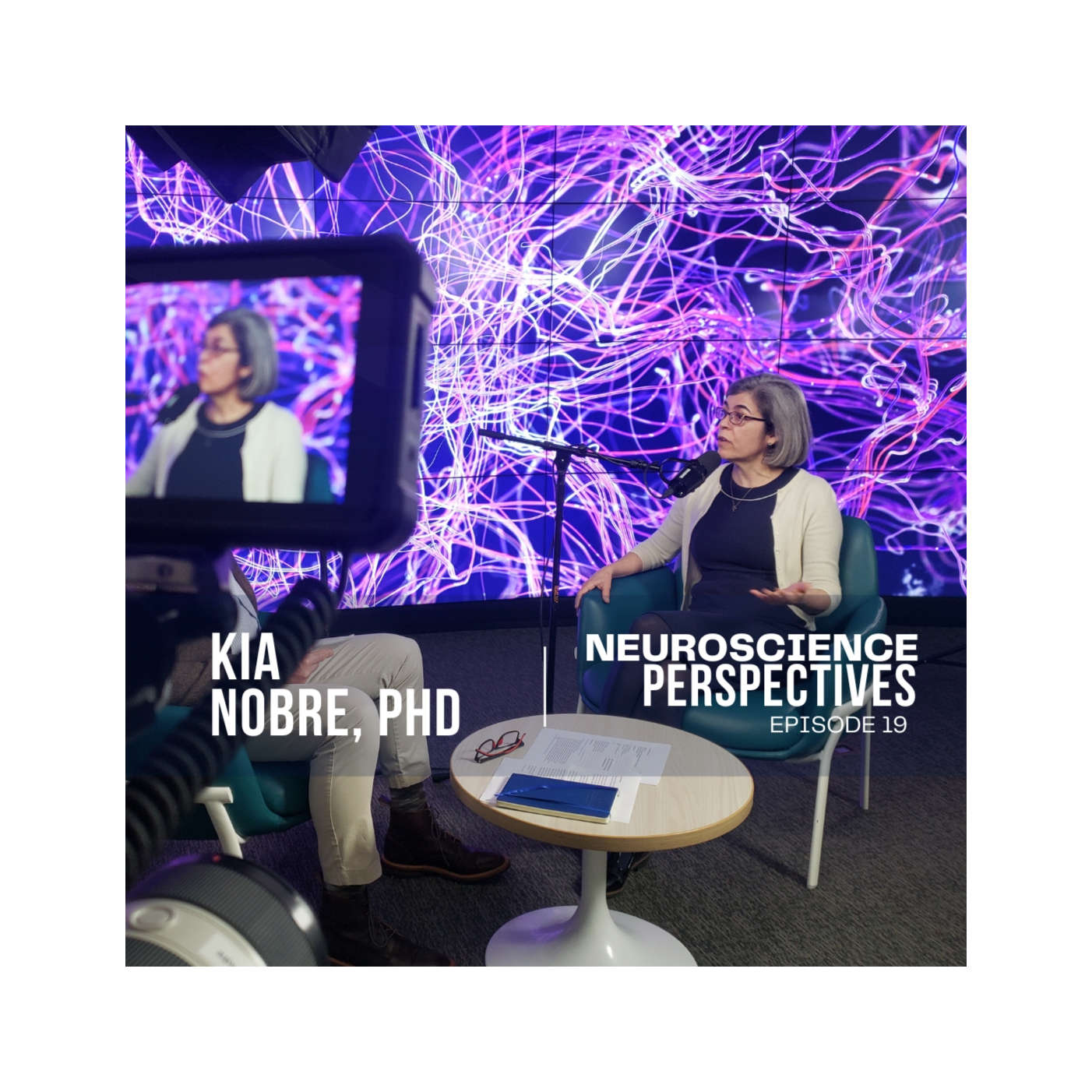
Kia Nobre, PhD, is the director of the Center for Neurocognition and Behavior at the Wu Tsai Institute at Yale University. Her discoveries have revolutionized our scientific understanding of the human mind and #brain. She tells John Foxe, PhD, director of the Del Monte Institute for Neuroscience, about the great gift she acquired as a child that leveraged her education at an early age. Nobre recently returned to her alma mater after spending most of her career at Oxford University where she held several leadership roles, including the director of the Oxford Centre for Human Brain Activity.
...
How do early life experiences shape brain function and critical periods of brain development?
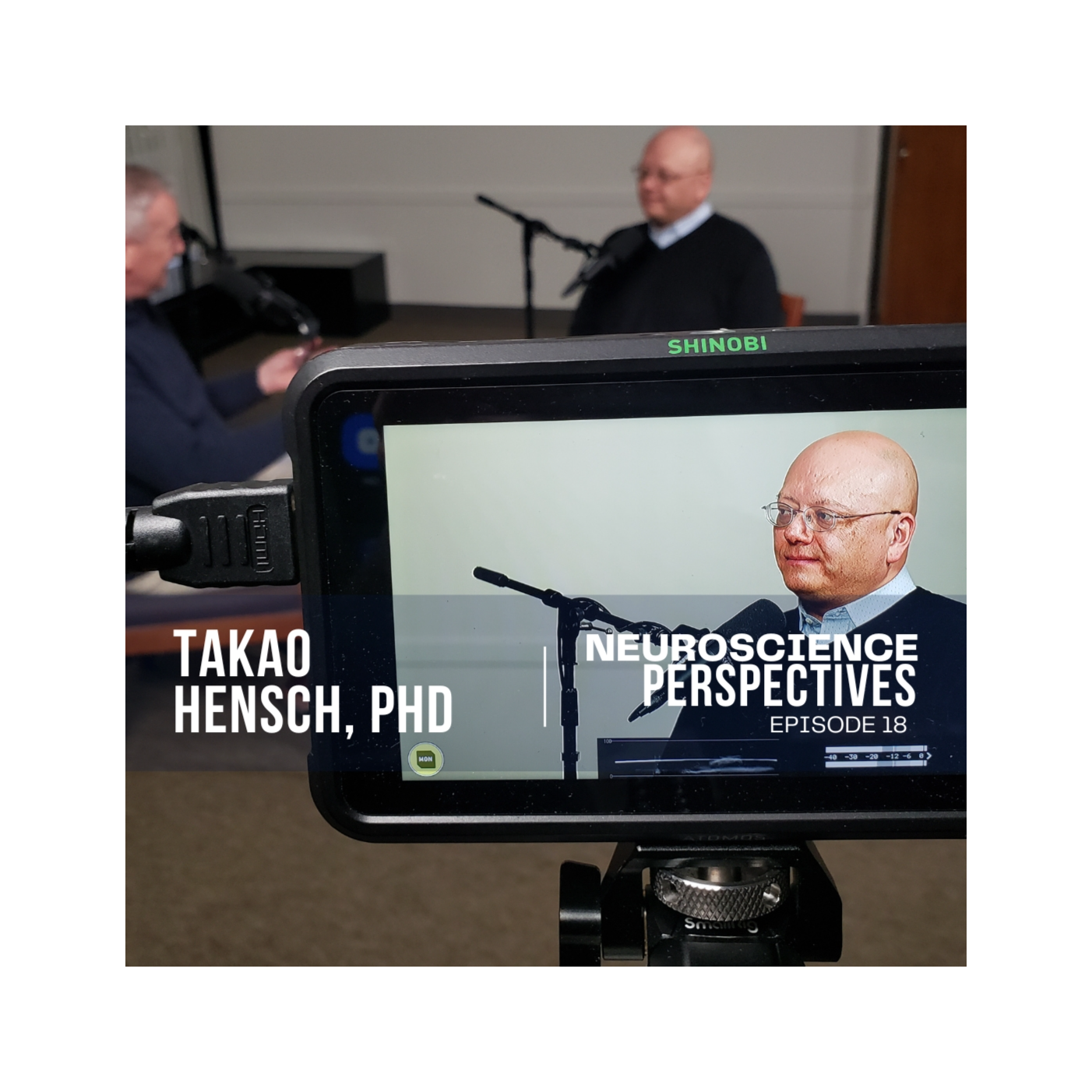
Takao Hensch, PhD, is a professor of Neurology at Harvard Medical School at Boston Children’s Hospital and a professor of Molecular and Cellular Biology at Harvard’s Center for Brain Science. He leads the National Institute of Mental Health Silvio Conte Center on Mental Health Research at Harvard and the International Research Center for Neurointelligence. Dr. Hensch joins John Foxe, PhD, director of the Del Monte Institute for Neuroscience at the University of Rochester, on NeURoscience Perspectives to discuss the critical periods of brain development and whether plasticity can be reopened to target and treat disease. He also shar...
How are injury and illness monitored in the brain? And how can scientists diversify the bench?
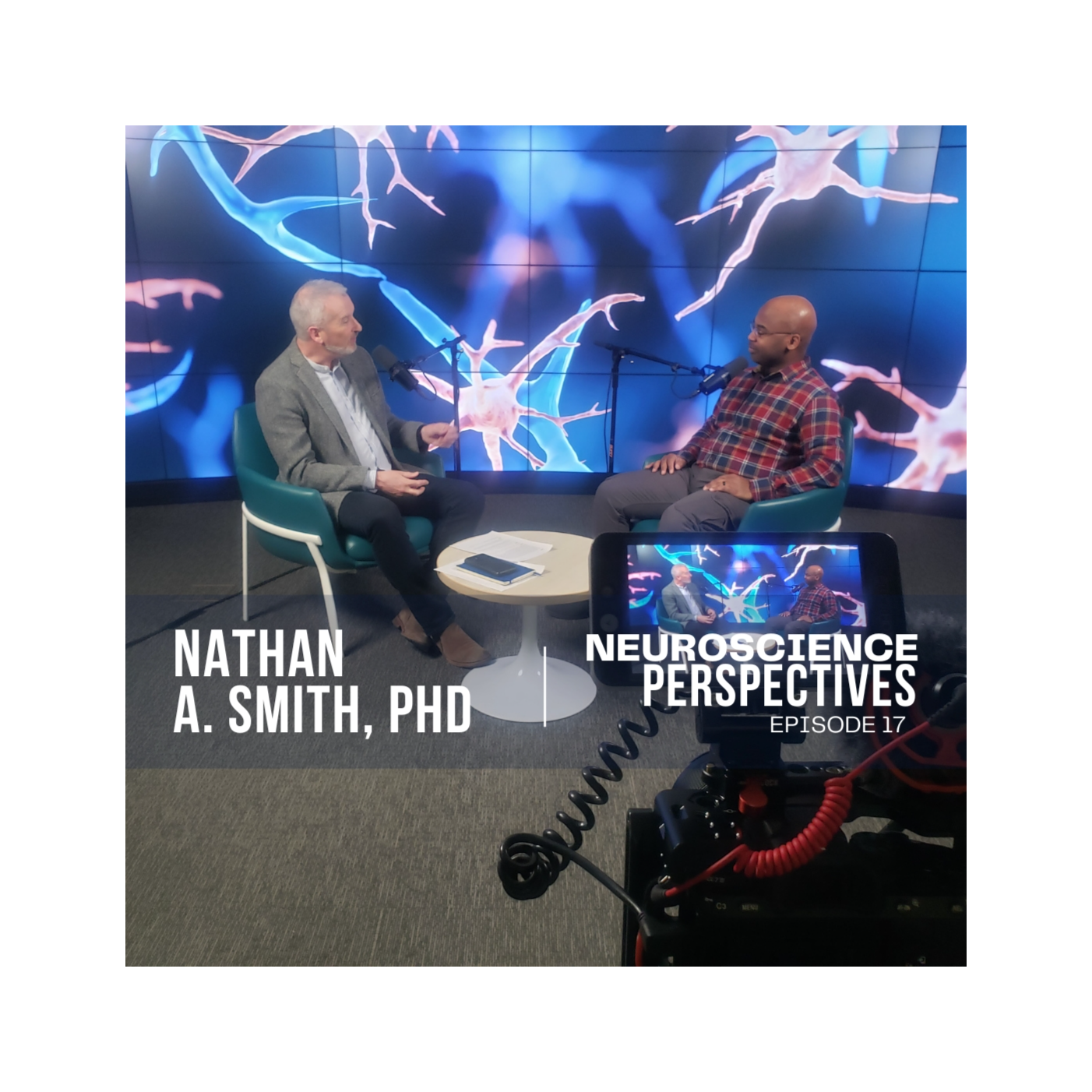
How are injury and illness monitored in the brain? Once thought of as the glue of the brain, glia cells have been proven to play a key role in brain health with astrocytes acting as important messengers. These star-like cells are at the center of the research of Nathan A. Smith, PhD, associate dean for Equity & Inclusion for Research and Research Education and associate professor of Neuroscience at the University of Rochester Medical Center and School of Medicine, who joins John Foxe, PhD, director of the Del Monte Institute for Neuroscience at the University of Rochester, on NeURoscience Perspectives...
How do we learn? How does our brain change between different mental states?
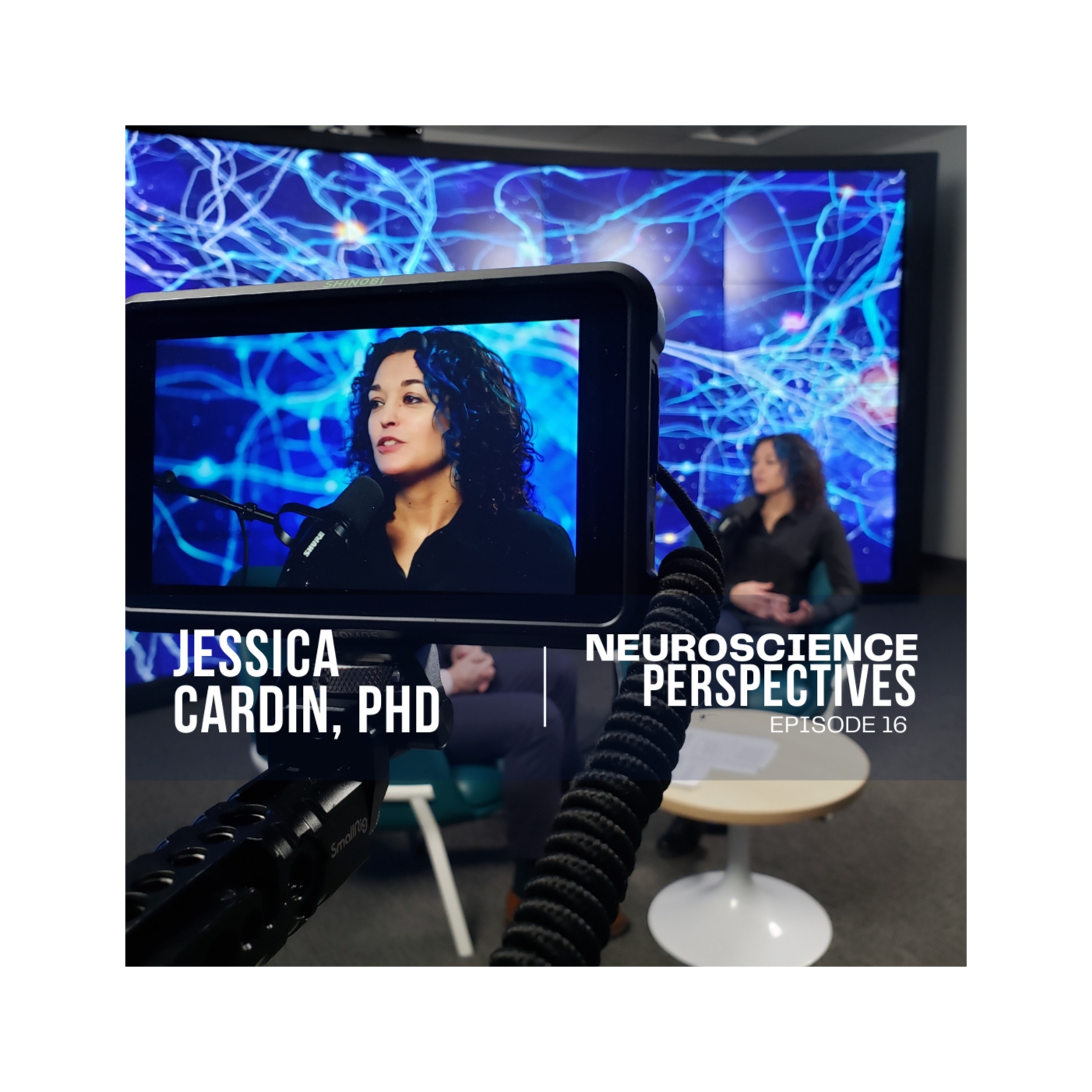
What changes happen at the cellular level in the cerebral cortex between concentration and daydreaming?
Jessica Cardin, PhD, associate professor and vice chair of the Neuroscience Department at Yale School of Medicine, joins John Foxe, PhD, director of the Del Monte Institute for Neuroscience at the University of Rochester, on NeURoscience Perspectives. They explore her interest in understanding how we learn, specifically, the flexibility of our brain, and her creative approaches in the lab that aim to improve our understanding of the cellular mechanisms behind neurodevelopmental disorders such as autism or schizophrenia. Dr. Cardin also shares how...
How does the brain perceive touch? How does it process pain?
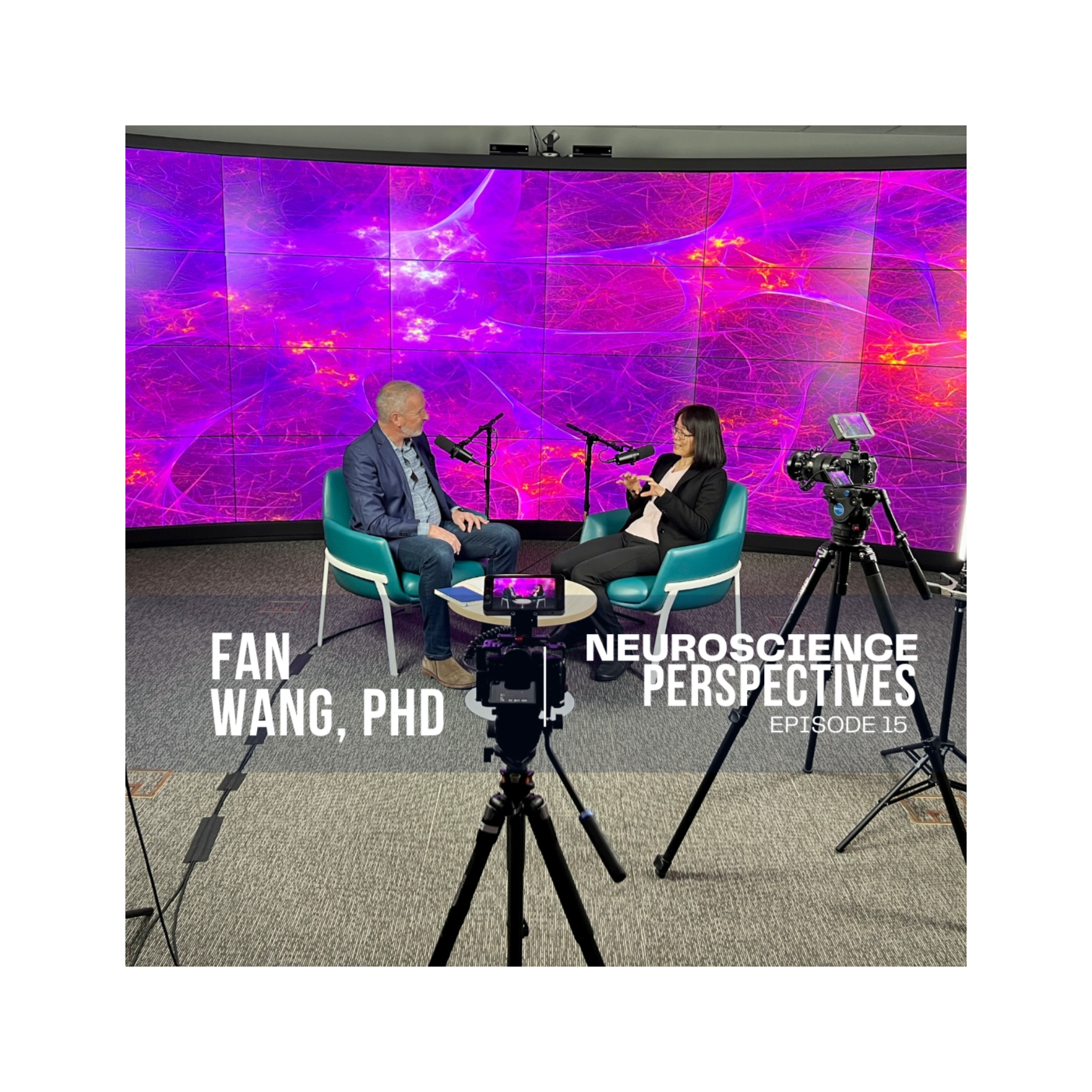
How does the brain perceive touch? How does it process pain? Could what we know about pain better inform treatments for addiction? Fan Wang, PhD, professor in the Brain and Cognitive Sciences department at the McGovern Institute for Brain Research at MIT, joins John Foxe, PhD, director of the Del Monte Institute for Neuroscience at the University of Rochester for this engaging discussion in NeURoscience Perspectives. Hear her journey to research, how the focus of her lab has transformed over time, and how she is using role as a researcher to better the lives of others.
What does the spontaneous activity in the brain tell us?
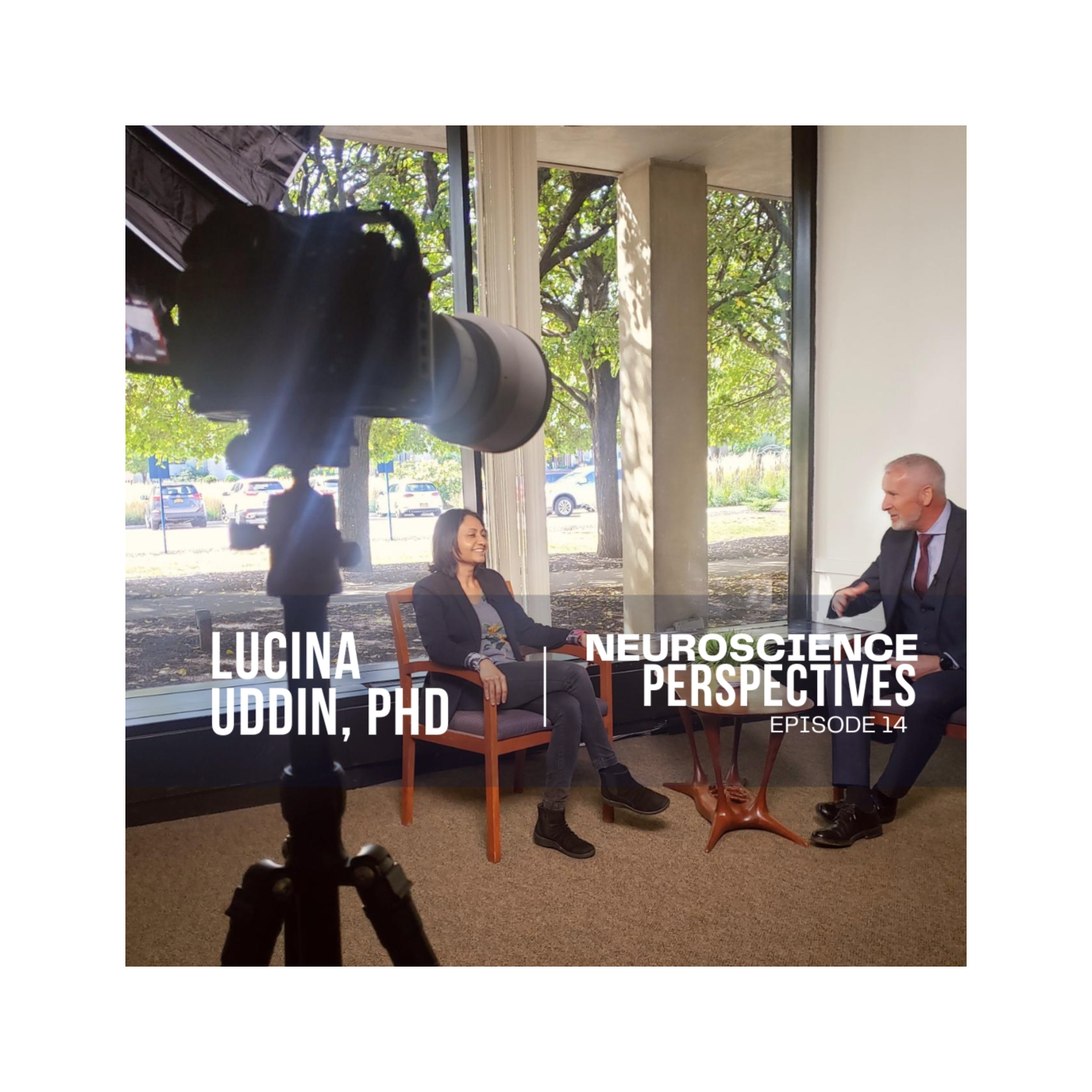
Lucina Uddin, PhD, professor-in-residence of Psychiatry and Biobehavioral Sciences at University of California, Los Angeles, joins John Foxe, PhD, director of the Del Monte Institute for Neuroscience at the University of Rochester for this engaging discussion in NeURoscience Perspectives. Hear her journey to research, how she’s taking on diversity and inclusion in the NIH funded largest long-term study of adolescent brain development (the ABCD Study), and her best advice for aspiring scientists.
NeURoscience Perspectives: Brian Boyd, PhD
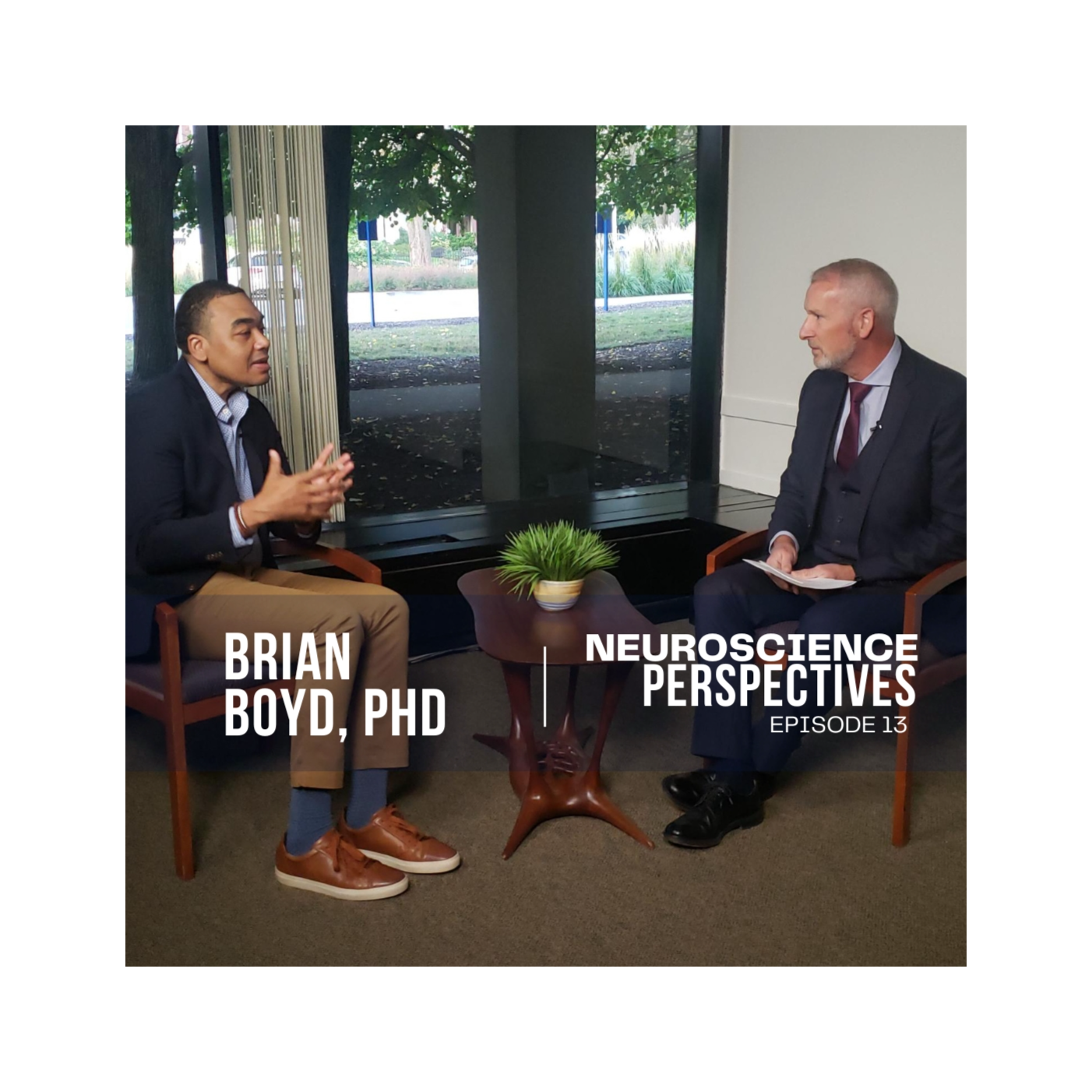
How a paragraph in a textbook and a summer camp were pivotal to the career of Brian Boyd, PhD, William C. Friday Distinguished Professor of Education Interim Director of the Frank Porter Graham Child Development Institute at the University of North Carolina (UNC). Boyd has dedicated his career to autism spectrum disorder (ASD). He trained in special education, and much of his research has involved developing and evaluating evidence-based practices for children with ASD in schools and at home. His recent work focuses on how implicit bias and race affect the outcomes of children with and without disabilities. He...
NeURoscience Perspectives: Yoland Smith, PhD
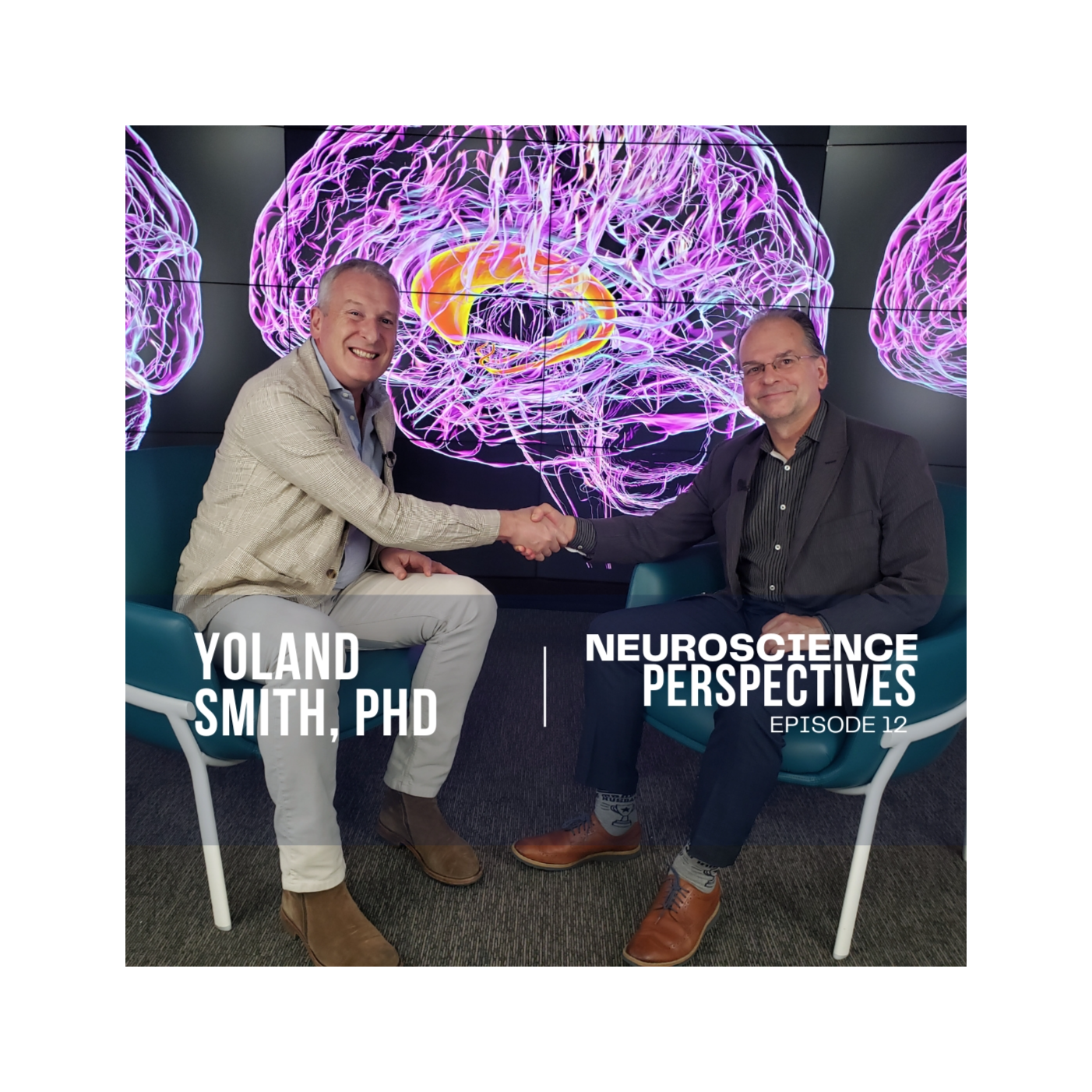
In this episode of NeURoscience Perspectives, John J. Foxe, PhD, the director of the Del Monte Institute for Neuroscience at the University of Rochester, is joined by Yoland Smith, PhD, Division Chief, Neuropharmacology and Neurologic Diseases, Emory National Primate Research Center. Dr. Smith [https://bit.ly/43TGPwG] seeks to understand the pathophysiology of Parkinson's Disease and characterize changes in the synaptic plasticity of the basal ganglia in normal and pathological conditions. He shares one of the biggest challenges in Parkinson's research. Dr. Smith is a prolific publisher with more than 250 peer-reviewed manuscripts on the pathophysiology of brain networks in...
NeURoscience Perspective: Dean Salisbury, PhD
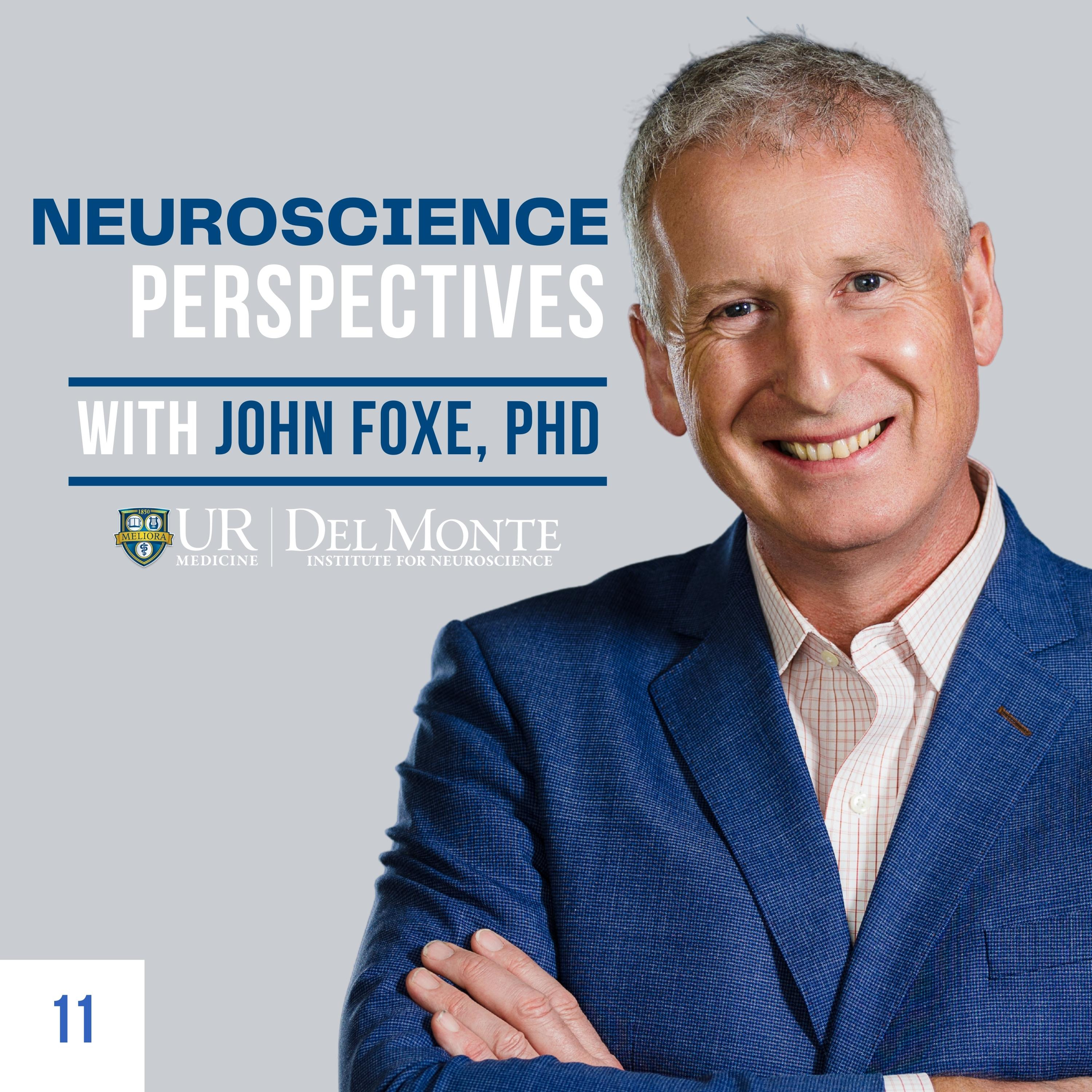
In this episode of NeURoscience Perspectives, John J. Foxe, PhD, the director of the Del Monte Institute for Neuroscience at the University of Rochester, is joined by Dean Salisbury, PhD, a professor of Psychiatry at the University of Pittsburgh. Dr. Salisbury [https://www.cnrl.pitt.edu/] helped to change the conceptualization of schizophrenia as a static, perinatal encephalopathy by pioneering the combined use of structural brain imaging and electroencephalographic (EEG) measurement of auditory cortex responses to demonstrate that progressive gray matter loss during the early disease course of schizophrenia is linked to progressive auditory impairment. A transcript version is...
NeURoscience Perspectives: Katalin Gothard, MD, PhD
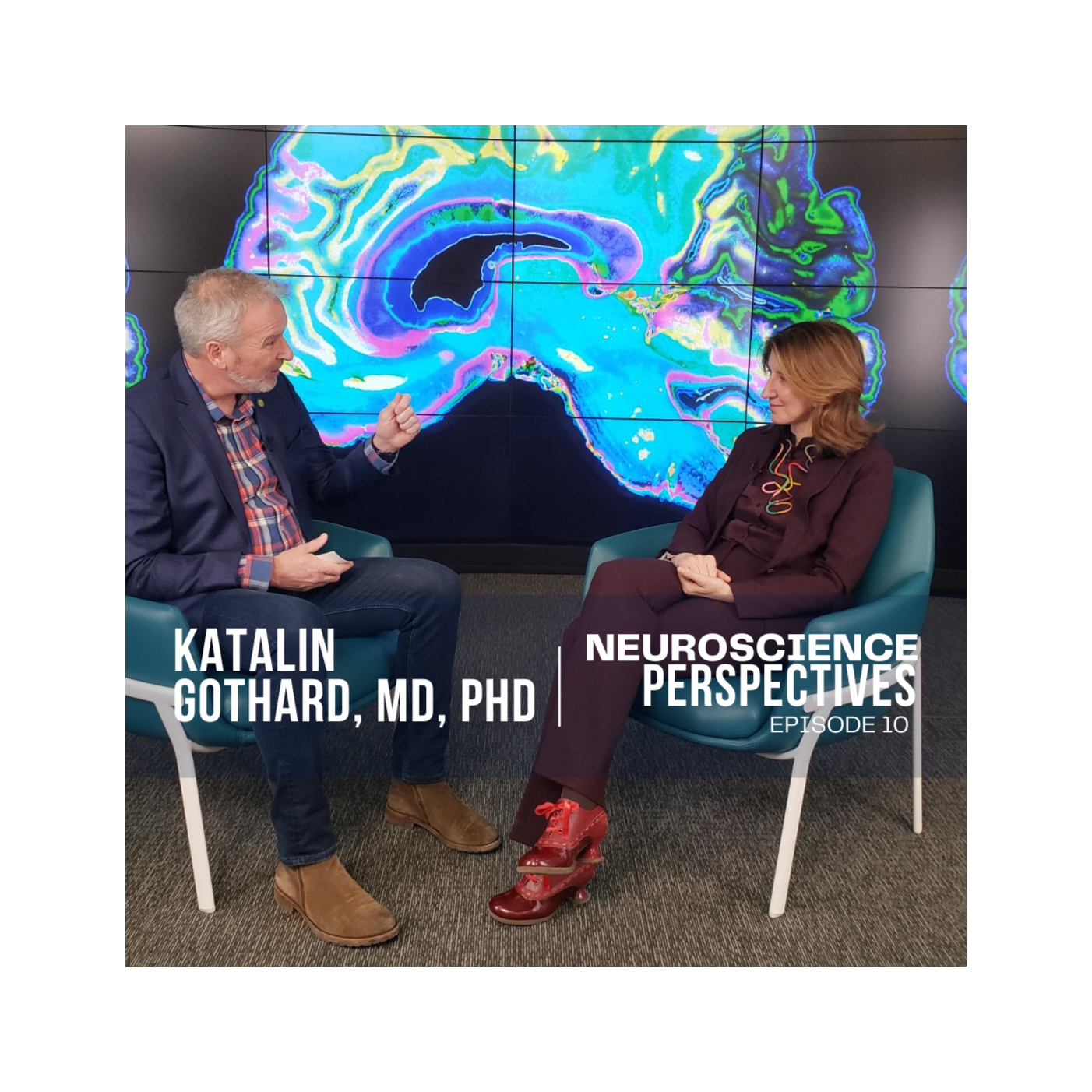
In this episode of NeURoscience Perspectives, John J. Foxe, PhD, the Director of the Del Monte Institute for Neuroscience at the University of Rochester, is joined by Katalin Gothard, MD, PhD, a professor of Physiology and Neuroscience at the University of Arizona. Dr. Gothard's lab [https://gothardlab.org/] studies the neural basis of emotion and social behavior. Originally, from Romania Dr. Gothard worked in the orphanages while she trained to be a physician. Today, her research mostly focuses on touch, and what she experienced with those children early in her career is never far from her mind. Don't miss...
NeURoscience Perspectives: Qiang Chang, PhD
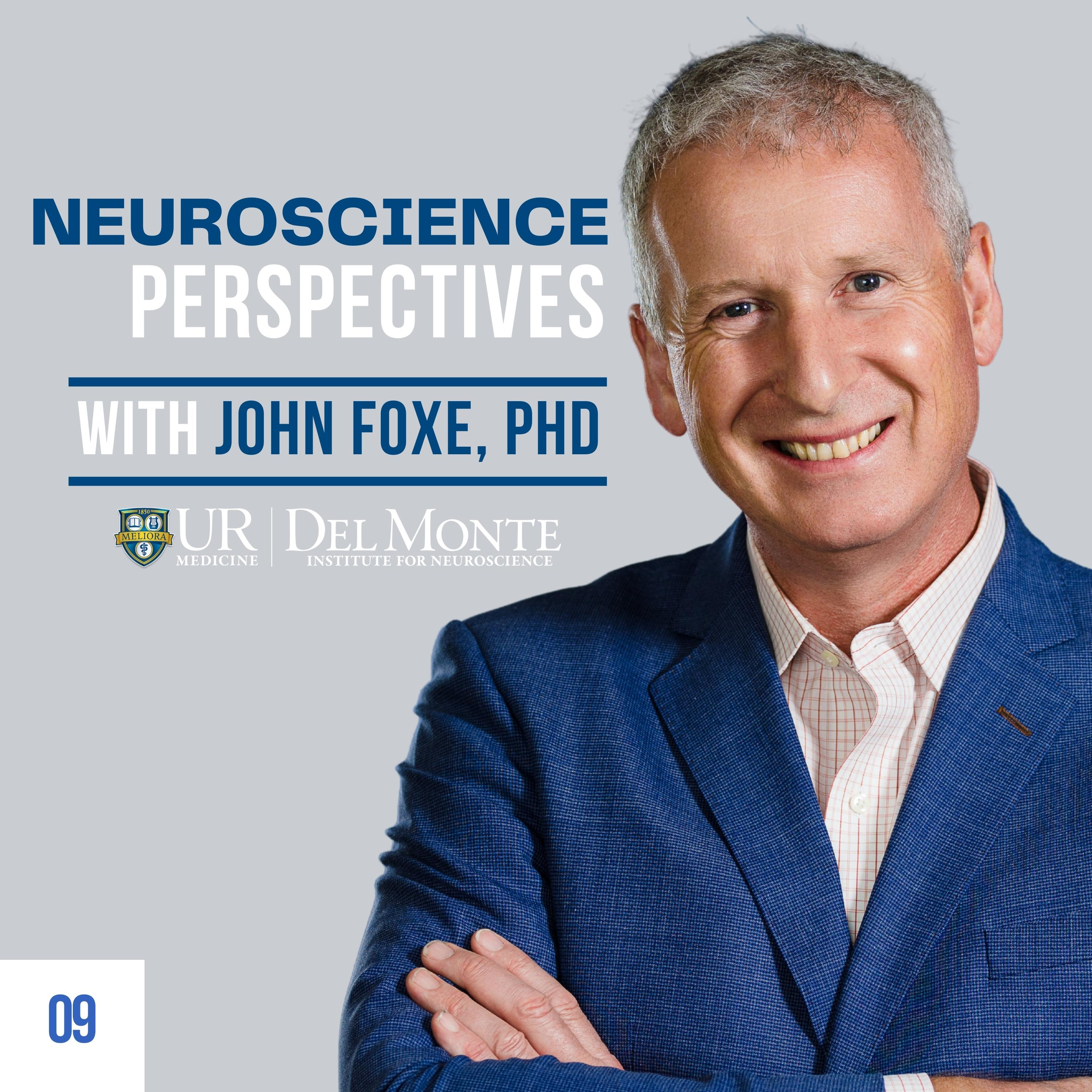
In this episode of NeURoscience Perspectives with John Foxe, PhD, the Director of the Del Monte Institute for Neuroscience at the University of Rochester, he is joined by Qiang Chang, PhD, a professor of Medical Genetics & Neurology at University of Wisconsin-Madison. Dr. Chang's lab studies Rett syndrome, a developmental disorder caused by mutations that deform an essential protein called MeCP2. [https://www.waisman.wisc.edu/stem-cel...]. He is the director of the Waisman Center at and leads the Intellectual and Developmental Research Center at UW-Madison. A transcript version is available on YouTube: https://youtu.be/PJocpQy-mzA
NeURoscience Perspectives: Helen Barbas, PhD
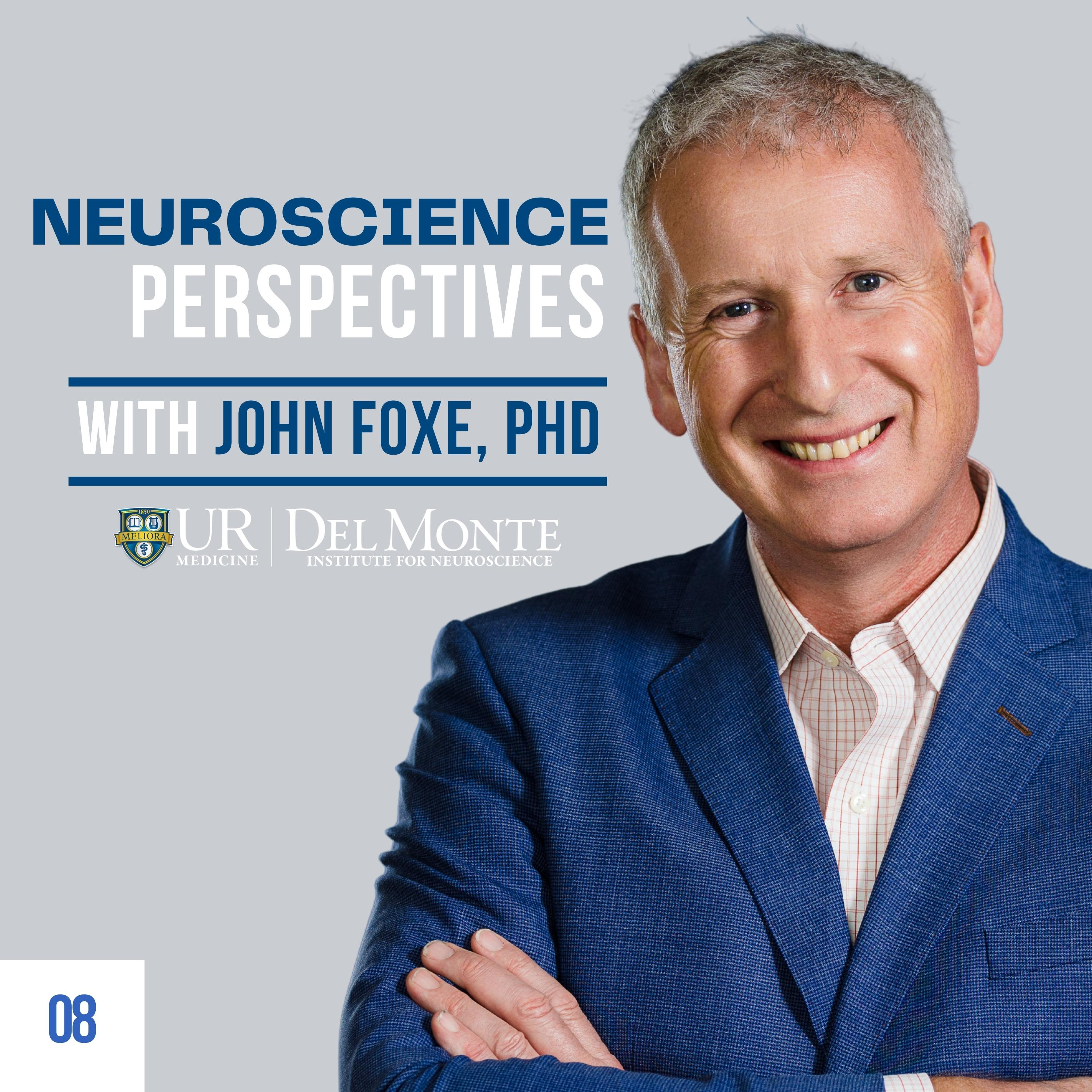
In this episode of NeURoscience Perspectives with John Foxe, PhD, the Director of the Del Monte Institute for Neuroscience at the University of Rochester, he sits down with Helen Barbas, PhD, a professor of Anatomy & Neurobiology at Boston University School of Medicine. Dr. Barbas started her lab, Neural Systems Laboratory [https://www.bu.edu/neural/], at BU in the 1980s and has made numerous contributions to our understanding of circuits in the prefrontal cortex in primates. Deemed a pioneer in neuroanatomy of the primate brain, she pursued work in the prefrontal cortex that others though was “too complex to st...
NeURoscience Perspectives: Bea Luna, PhD
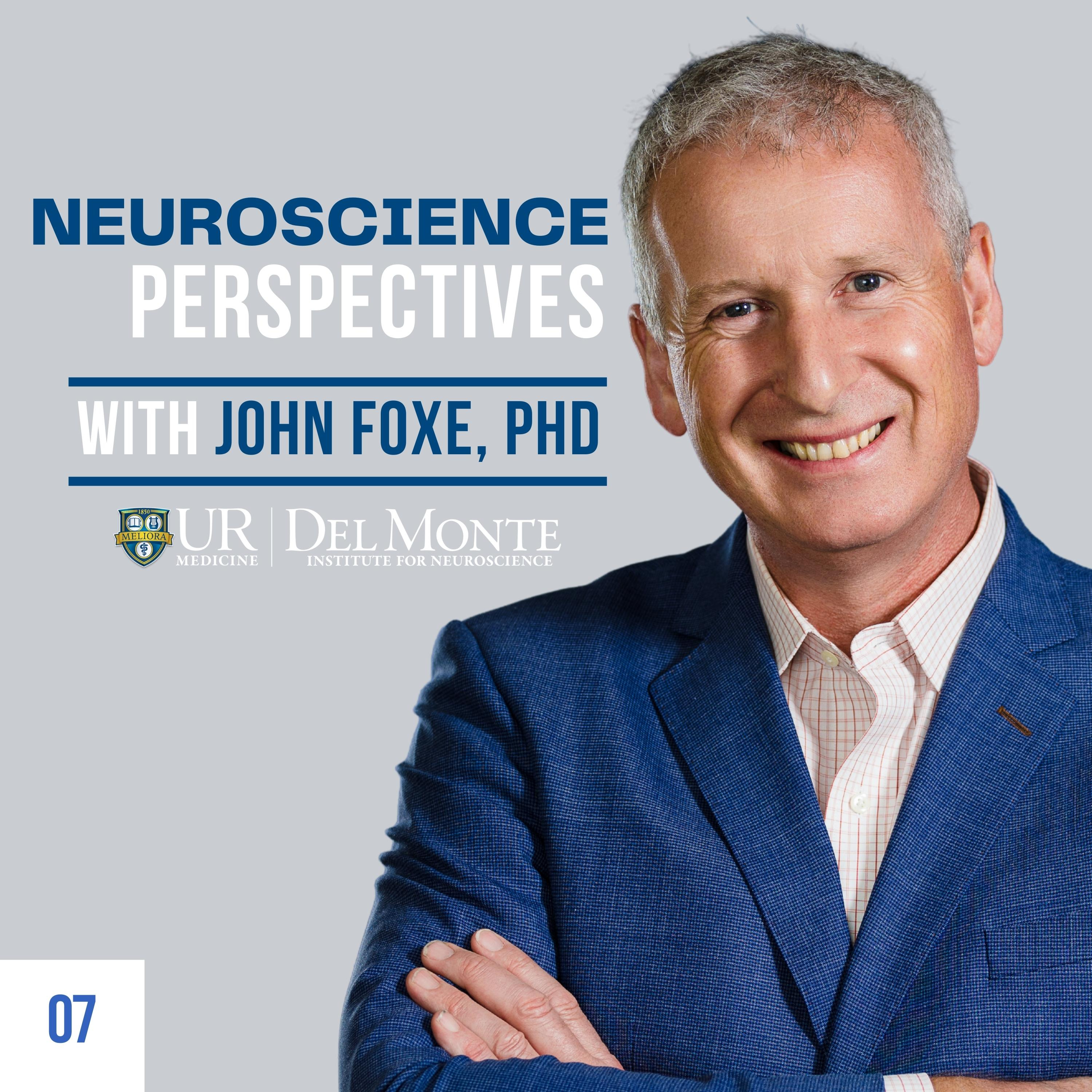
In this episode of NeURoscience Perspectives with John J. Foxe, PhD, the Director of the Del Monte Institute for Neuroscience at the University of Rochester, he sits down with Bea Luna, PhD, a professor of Psychiatry at the University of Pittsburgh. Dr. Luna is a developmental neuroscientist known for conducting neuroimaging research on the development of cognitive control, reward, and reinforcement learning from early childhood to adolescence. She shares her journey from Chile to the U.S. as a teen, why she has spent her career dedicated to understanding adolescence brain development, her time working in the White House...
NeURoscience Perspectives: Tatiana Pasternak, PhD
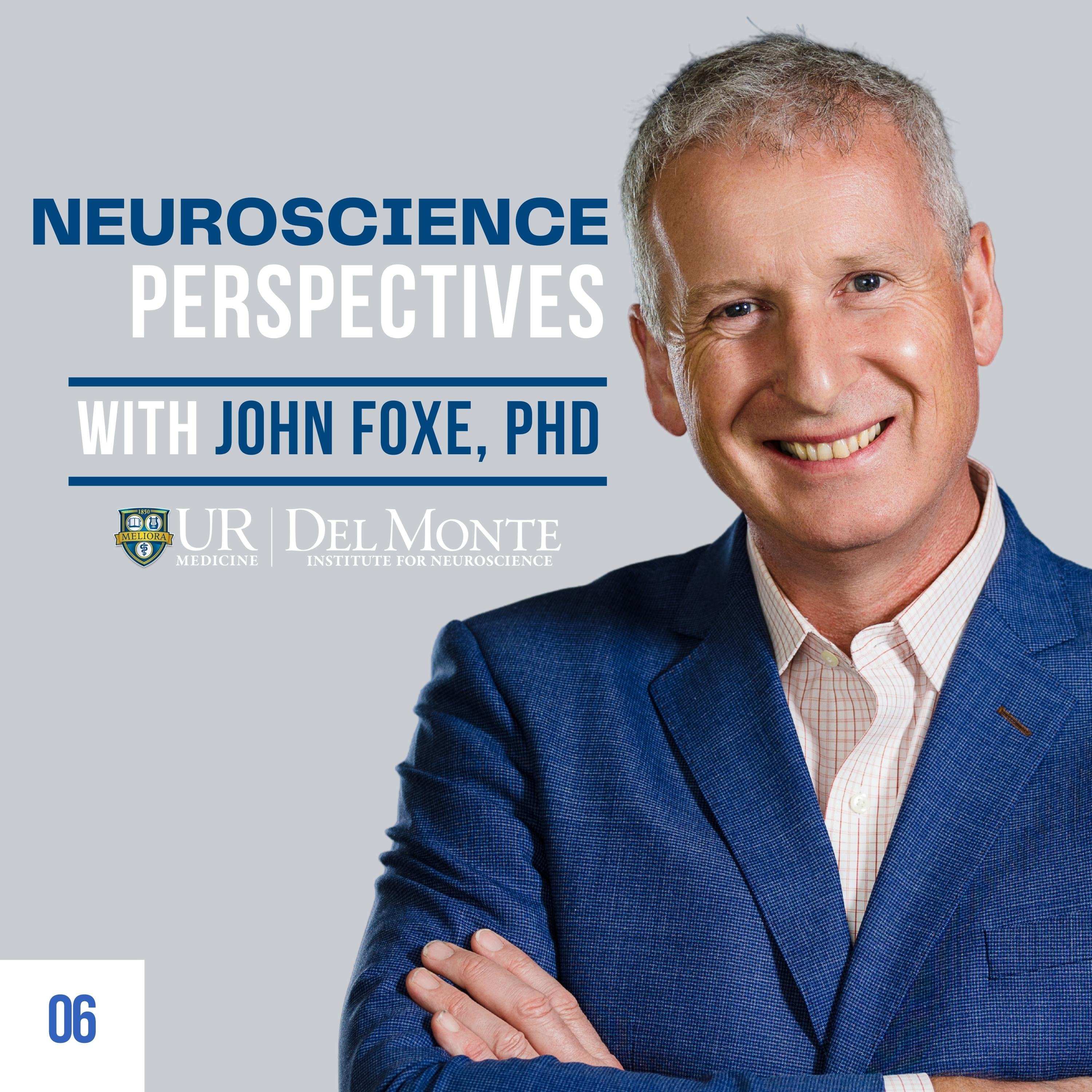
In this episode of NeURoscience Perspectives, John Foxe, PhD, the Director of the Del Monte Institute for Neuroscience at the University of Rochester sits down with Tatiana Pasternak, PhD, a Scientific Review Officer at the National Institute of Neurological Disorders and Stroke. Dr. Pasternak spent more than 40-years as a Professor of Neuroscience and researcher at the University of Rochester. Watch to learn about her research and her personal journey from Lativa to the United States, and how she continued her neuroscience education along the way.
A transcript version is available on YouTube: https...
NeURoscience Perspectives: Ed Callaway, PhD
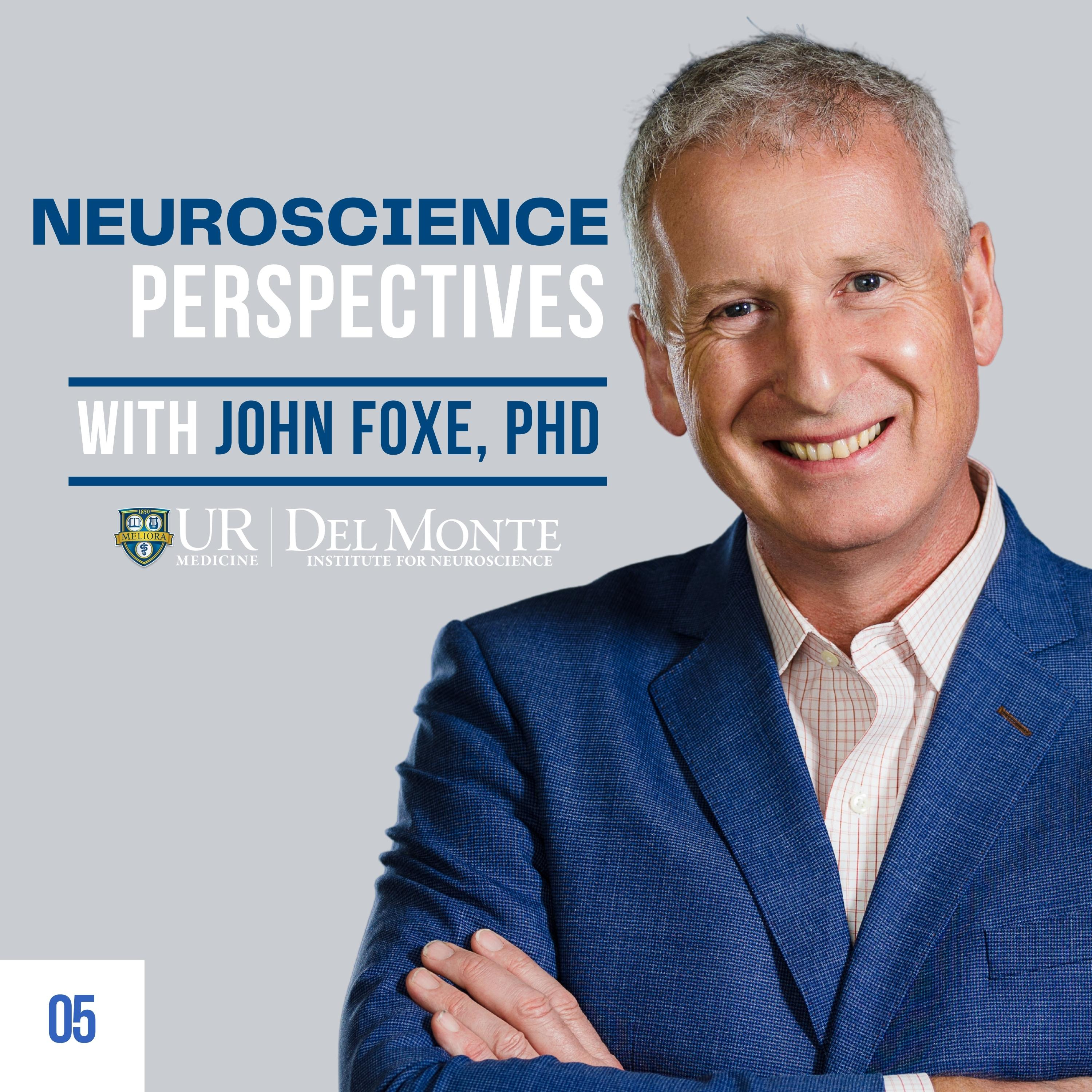
In this episode of NeURoscience Perspectives, John J. Foxe, PhD, the Director of the Del Monte Institute at the University of Rochester, sits down with Ed Callaway, PhD, professor and Audrey Geisel chair in the systems neurobiology laboratories at the Salk Institute for Biological Studies in La Jolla, California. A transcript version is available on YouTube: https://youtu.be/om3zkpm0AEE
NeURoscience Perspectives: Jeffrey Macklis, MD
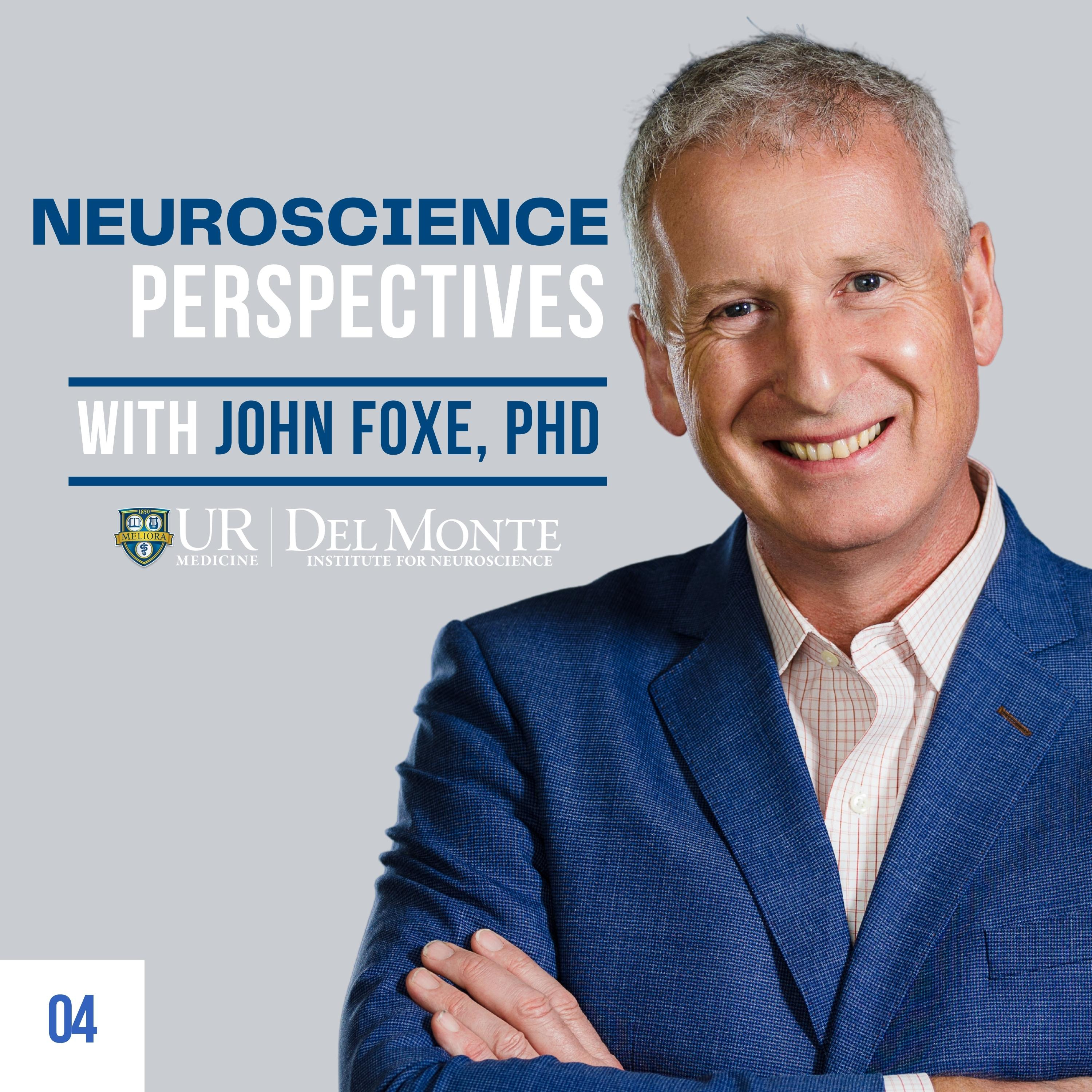
In NeURoscience Perspectives, John Foxe, PhD, the Director of the Del Monte Institute for Neuroscience at the University of Rochester, picks the brains of world-renowned neuroscientists. In this episode, Foxe sits down with Jeffrey Macklis, MD, is the Max and Anne Wien Professor of Life Sciences in the Department of Stem Cell and Regenerative Biology, and Center for Brain Science at Harvard University, and Professor of Neurology and of Neurosurgery at Harvard Medical School. A transcript version is available on YouTube: https://youtu.be/eBTAVieLPtM
NeURoscience Perspectives: David Amaral, PhD
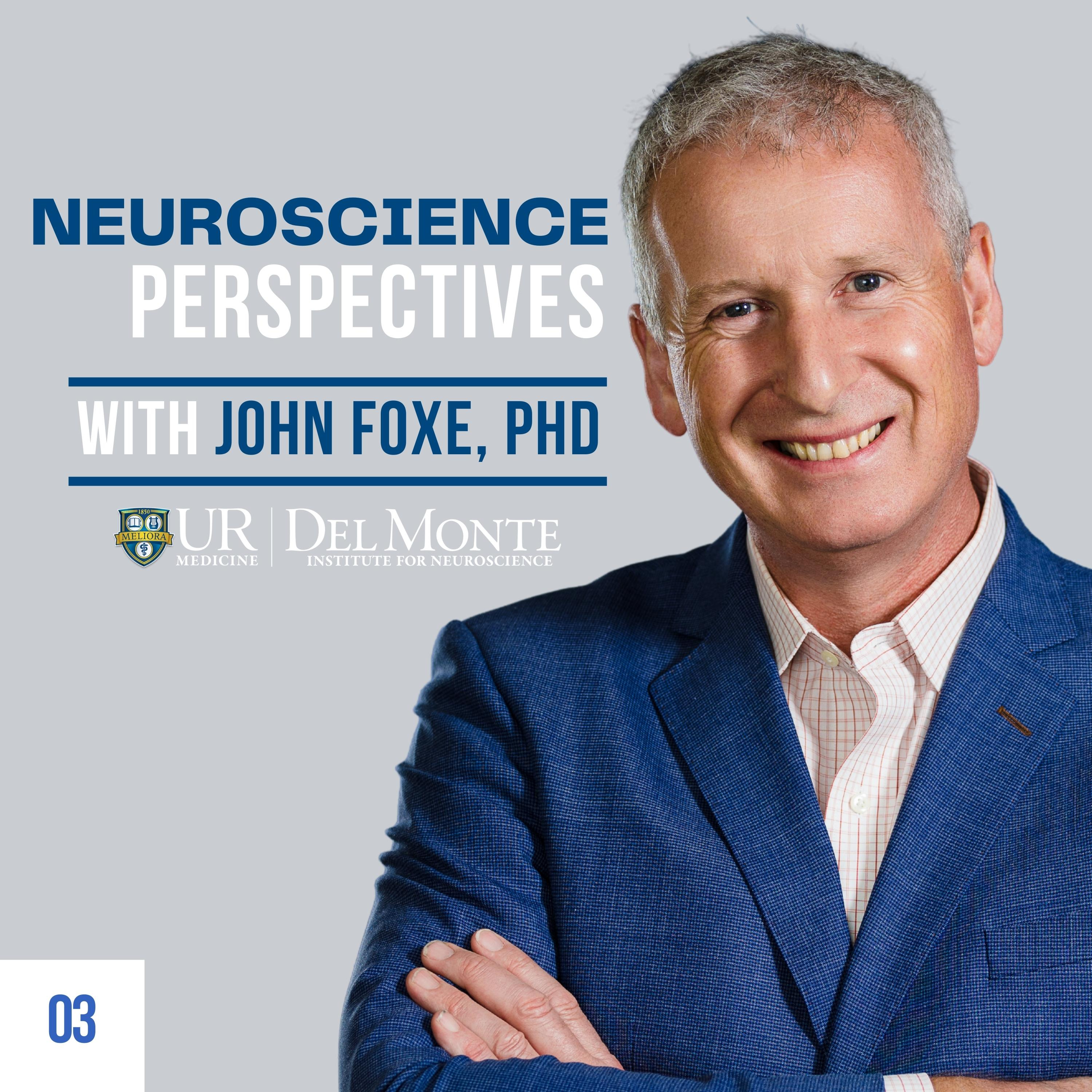
In NeURoscience Perspectives with John Foxe, PhD, the director of the Del Monte Institute at the University of Rochester, picks the brains of world-renowned neuroscientists. In this episode, Dr. Foxe sits down with David Amaral, PhD, a Distinguished Professor in the Department of Psychiatry and Behavioral Sciences at University of California, Davis. He is also the Beneto Foundation Chair and Research Director of the MIND Institute which is dedicated to studying autism and other neurodevelopmental disorders. Dr. Amaral explains to Dr. Foxe what lead him to study autism, why most of his work focuses on the disorder, and how...
NeURoscience Perspectives: Helen Tager-Flusberg, PhD
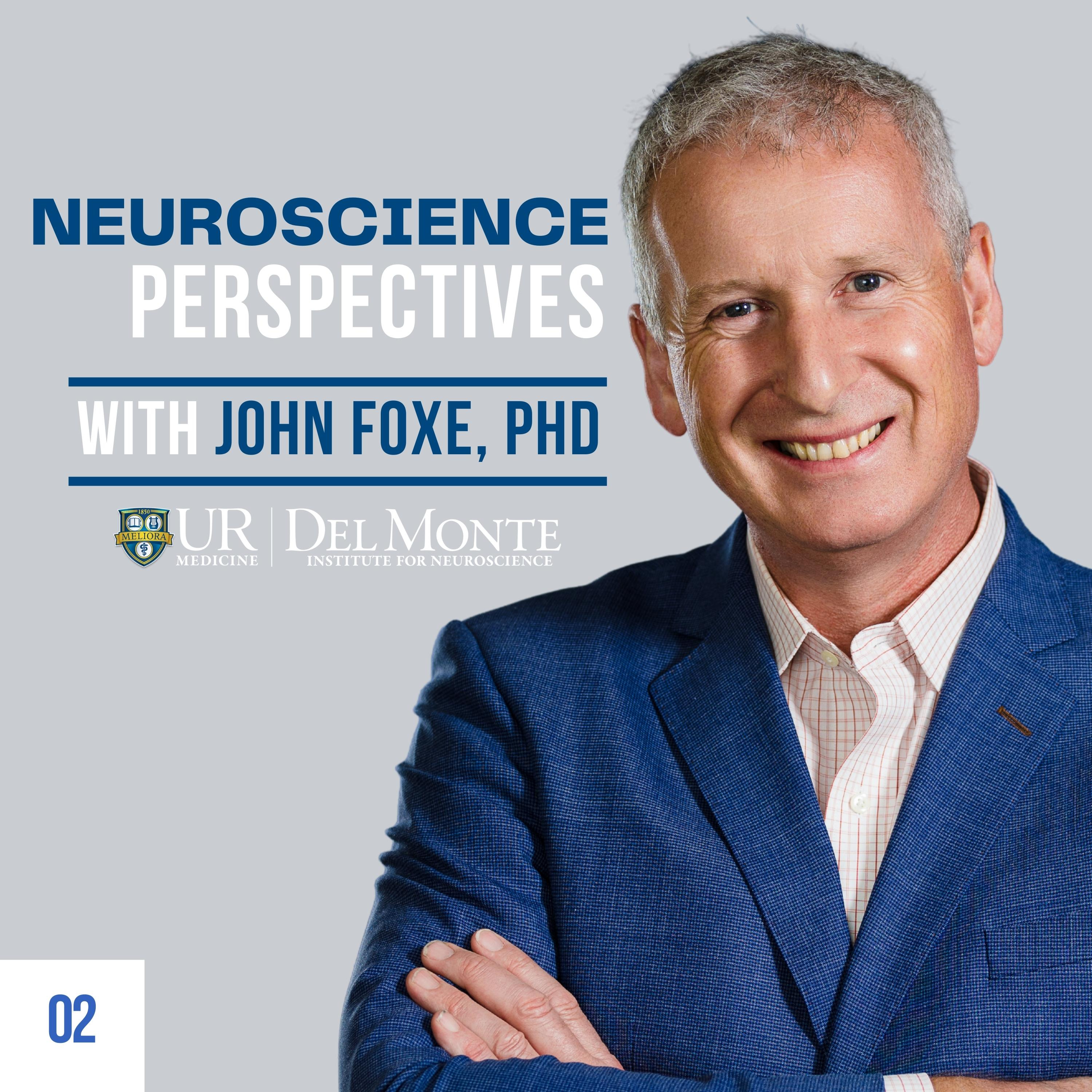
In this episode of NeURoscience Perspectives John J. Foxe, PhD, the Director of the Del Monte Institute at the University of Rochester, sits down with Helen Tager-Flusberg, PhD. Dr. Tager-Flusberg is the director and principal investigator at the Center for Autism Research Excellence - CARE at Boston University. She is also a professor in the Department of Psychological & Brain Sciences at the university and a professor in the Department of Anatomy & Neurobiology and Pediatrics at Boston University School of Medicine. In this interview, she shares her years of researching language, communication, and associated social-cognitive deficits in Autism and other...
NeURoscience Perspectives: Steve Petersen, PhD
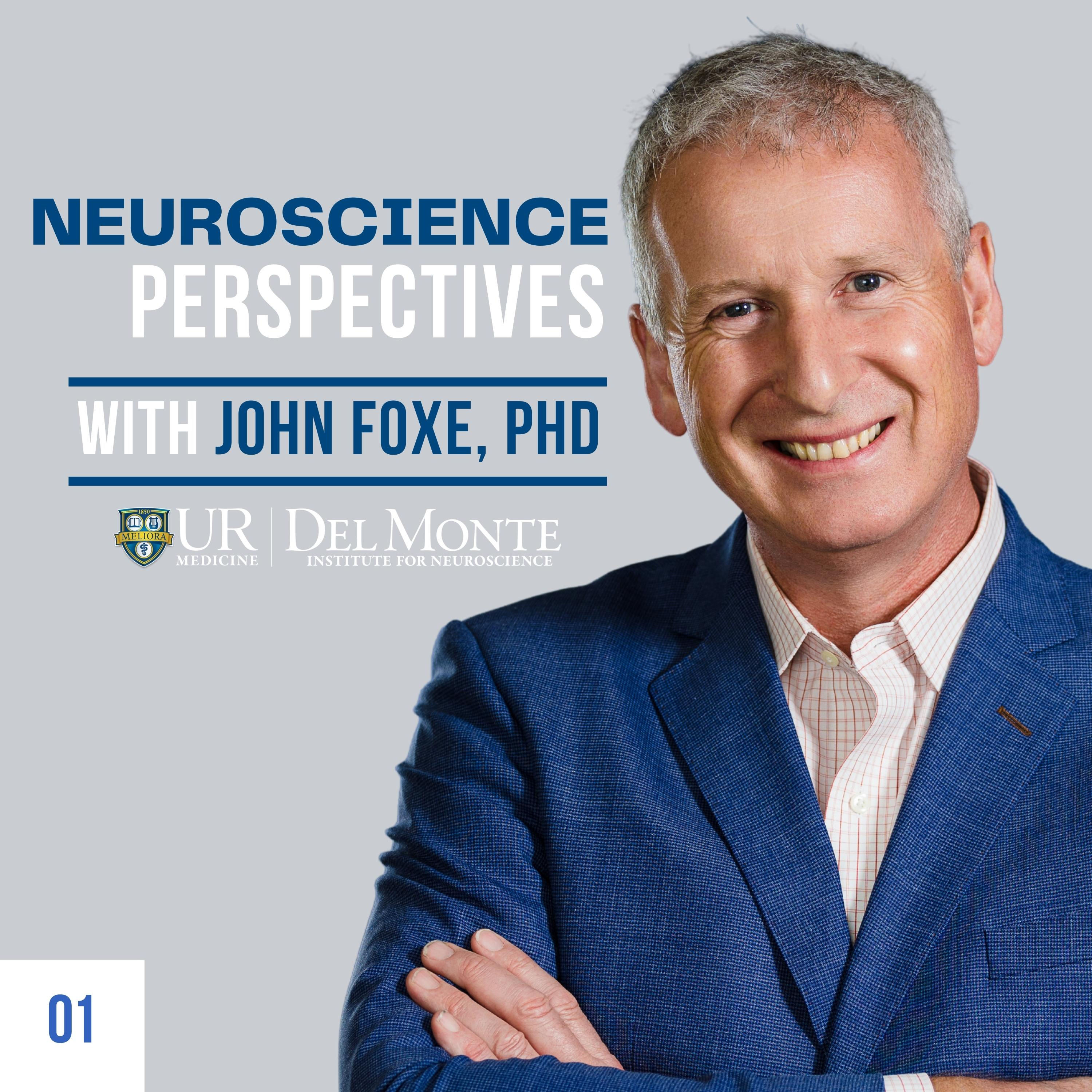
In this episode of NeURoscience Perspectives with John Foxe, PhD, director of the Del Monte Institute at the University of Rochester, he is joined by Steven Petersen, PhD, Professor of Radiology, Psychological & Brain Sciences, Biomedical Engineering, and Neuroscience at Washington University in St. Louis Professor Petersen’s lab uses behavioral, functional neuroimaging (fMRI) and functional connectivity (fcMRI) to study the neural mechanisms underlying attention, language, learning and memory. One area of particular research focus is the development of neural mechanisms underlying reading from ages seven to adulthood with an emphasis on how visual regions in the brain change as pe...
